|
At long last, the science fiction series is on its way. Starting 2/February/2024, I will post chapters from The Spider, The Witch, And The Spaceship. Then in 2025 I will post 42 short stories per year for 30 years. This will be the most epic series of all spacetime! The adventure begins now.
0 Comments
Another book published! My mother’s father was born in North Kingstown, Rhode Island in 1914 and lived in the same house his entire life. In 2017, he had a minor stroke and it was then decided that I would move in. The plan was that I would handle the riskier tasks, such as walking to the mailbox or bringing the laundry to the basement. I would also drive him places. Thus began my comical misadventures of living with a man who had lived in the same town for more than a century and yet didn’t know what smores were, who had a specific place for everything but didn’t always remember where it was, who misheard absolutely everything, and who rarely threw anything away. I’d like to say I learned a lot, but I probably didn’t.
Another book published! There are many who have had an encounter with the creator, but I’ve never heard of any like mine. Since no one else tackles the topics I do, I thought that my witness might help others who continue to struggle. How do we know the will of God? How do we build our faith? How do we stop sinning? What do we have to do to get our prayers answered? What are the rules? Never mind that. Anything one does to support one’s spiritual growth can only end in sin and self-defeat, like a snake eating its own tail. God is smart enough to solve any problem resulting from our failures, so we don’t have to worry about following rules of any kind. I had to learn this the hard way. Only now do I understand that one has to lose his life to find it and that it is no longer I who live, but Christ who lives through me. Like a computer program gone bad, we must have ourselves “uninstalled.” This is my story.
When institutions we used to support succumb to scandal, policies we used to endorse lead to unintended outcomes, and long-established scientific theories are questioned, it can leave us wondering what to do next. Holding on to failed ideas too long is the root of much of the world’s suffering. When all our idols are gone, what is left over? What can give us hope in the midst of uncertainty? I write this book to propose a model for viewing the world. It is the only thing I have found to make sense of my life and some of the things I’ve been through. I believe I have done nothing short of discovering a form of morality that even relativists can endorse, a form of spiritual awareness that even atheists can understand, and the first step to solving every societal problem. In this book, I systematically destroy every finite idol chapter by chapter, until only the true God is left over. The Best Policy: Starting with politics and economics and then generalizing to policies of all kinds, I show that going too far to one extreme causes one set of problems, while going to far to the other extreme causes a different set of problems. Trying to split the difference only gives us the problems of both extremes, and doing nothing only means that others will step in to do something. For every bit of advice out there, there is an “expert” predicting disaster if it is followed. Maybe they are all right. The Perfect Party: Focusing on building a true democracy, I show that knowing how to vote is difficult and a system of perfectly fair representation is impossible. The Ideal State: Focusing on creating checks and balances to create a corruption-proof government, I show that such a thing is also impossible. The Best Argument: Focusing on the use of psychology to change hearts and minds, I show how frustratingly unpredictable and irrational humans really are. The Last Resort: Resigning to the fact that the system has already broken down, I discuss violent revolution, pacifistic self-sacrifice, and civil disobedience, and why each of them only sometimes works. None of them are expected to work under the current circumstances. Taking Care of Number One: Resigning to the fact that we can’t change the world, I float the hope that we can at least change ourselves only to mercilessly shoot that down too. Cracks In The Foundation: Asking what morality is, I come to the conclusion that both relativism and absolutism must be false. Amazing Grace: Finally discovering hope in the infinite complexities in the structure of reality itself, I explain that the answer to everything is already here; there is nothing more for us to do. The cover art represents life. Life is a vexing puzzle. When nothing we try to solve life seems to work, we might be tempted to smash it with a hammer. American government is out of control. Everyone is saying it. Democrats blame Republicans and Republicans blame Democrats, but the real problem with government isn’t “conservative” policies or “liberal” policies; the problem is inconsistency. A law is only as good as the punishments backing it up. When too many lawbreakers go free and law-abiding citizens are treated like criminals, it encourages more lawbreaking. When the law in practice does not match the law on paper, it is a recipe for anarchy and war. It is the end of government.
I started writing this book in 2020 in a fit of anger. The anger has since worn off, but the problems have persisted. There are some signs that people are waking up and starting to solve the problems, but it might be too little, too late. Time will tell. I finally did it! I published another book. Here is the blurb:
Political rhetoric in America is getting scary. By now, most people have recognized the damage it does to relationships and seen how it can eventually culminate in riots. What is the cause of this? Is it the corrupt politicians? Is it the misleading news media? Is it faulty education? Is it miscommunication and misunderstanding? Is it the internet? After conversing with a great number of people both online and offline over many years and thinking things through from every possible angle, I have come to the conclusion that most people actually like to argue. The problem is one of the heart. The real reason the civility movement in America failed is that Americans are not civil people. This book is a continuation of the themes covered in my 2011 book, The Nutcase Across The Street, wherein I argued that by being too quick to give up on people we were allowing propagandists to divide us. Now I clearly see that no one is listening. There is no point in discussion. I might not have all the answers, but the first step to solving our problems is an honest assessment of what they are. That’s what this book is. It explains why civility failed. If you enjoy all the free content I put out on this blog, my YouTube channel, and elsewhere, or think I deserve more than I am able to get selling books and shirts, you can support me at BuyMeACoffee. For a nominal contribution, you can make sure I stay caffeinated and happy. Thank you for your support.
This alien creature lives in the thick, toxic atmosphere of a faraway planet. It lives off the radiation produced by dust grains it traps inside its body cavity.
It moves by pulling air through some of its thirteen valves and expelling it out of others. It can also rest on vertical surfaces by using its valves to create suction. Suction also allows it to pick up objects such as rocks to find the tastiest dust grains. Merchandise with this design is available in my store. This starfish of the distant future has learned to walk on land. Evolution has flipped its body over so its mouth is on the top. Its arms end in callouses it uses to skitter across the hot sand. Merchandise with this design is available in my store.
Most larger demons died within the first three billion years of our universe’s existence, but this diminutive flying demon has been wreaking havoc and causing mischief for fourteen billion years now. It is half a millimeter in width and can form plasma arcs. Its eye is inside its mouth and its veins spell 666.
This alien ghost has one eye, one nose, and one mouth, each on a separate head. It is covered in question marks and cloaked in mystery. When unscrambled, the letters on its skin spell “Boo, boo, boo, I will eat you.”
This animal uses its grooved flippers to hold on to the slippery rocks on the shores of its home planet. It is an air-breathing reptile that lives in salt water and eats mostly seaweeds, though it may rarely snatch up an odd crab or two.
It has poor vision, but partly makes up for this with the row of chemoreceptors on its upper lip. When threatened, it will roll into a ball with its dorsal osteoderms facing outwards. Merchandise with this design is available in my store. Millions of years in the future, some spiders evolve gliding membranes between their legs. Eventually, these surfaces become true wings and the first flying spiders terrorize the Earth. Their pedipalps become claws to hold onto tree trunks while resting. Merchandise with this design is available in my store.
This creature uses its multipronged tongue to lick up ants. When threatened, it can spit fire or whip around its hooked tail. Merchandise with this design is available in my store.
This alien creature is actually a colonial organism of many individuals, not unlike the siphonophores of Earth. They share blood vessels and a digestive cavity. The individual on one end has a sucking mouth ringed by sensitive oral whiskers. The rest of the colony sport transparent sacks full of symbiotic algae. How they communicate and coordinate their movements is still poorly understood (I haven't made it up yet). Merchandise with this design is available in my store.
This is no Earth mollusk. Its stacked shells are translucent. The "pearl" at one end functions as the lense of an eye. It walks on tube feet like a starfish. Its internal anatomy is still a mystery. All attempts to capture one have failed since they just slip under the sand when approached. Merchandise with this design is available in my store.
This creature lives in the deserts of a dry planet. Its body is filled with liquid mercury. It can walk slowly on its six legs or travel quickly by whipping its tail.
When threatened, it pumps all the mercury out of its tail into its body, giving it the weight to stand firm while it slashes its enemies with rapid swings of its knife-edged tail. Merchandise with this design is available in my store. This sea creature has tentacles to capture food particles like an anemone. It also walks around on a scaly skirt-like appendage filled with tube feet not unlike those of starfish. Its skin contains chromatophores to allow it to communicate visually not unlike a cuttlefish. Eyespots are located in each scale. Merchandise with this design is available in my store.
A few years ago, I drew some of the creatures mentioned in my novel, The Spider, The Witch, And The Spaceship. These are intelligent races that young Nate (then called Nathaniel) encounters in his travels. The Zleesnits and the Nops are always seen together. The Zleesnits build cities out of their bodies and have telescoping limbs. The Nops fly and create sonar pulses with their tongues. The Blentites have insectoid bodies, cat-like faces, and the wool and horns of a sheep. They live primarily in snowy environments and build domed, windowless cities. Meekons are apes with many toes. They live on many planets.
Doodling relaxes me. It's how I reflect the creativity and liveliness of the world back at itself. I've been doing it my whole life. I start by drawing one line and seeing where it takes me. Most end up being alien creatures. Sometimes I will remake a doodle on good paper with some effort and foresight. This is how I make my art in my art store. Between 2013 and 2017 I drew many creatures and landscapes, but not all of them were scanned in. Some are better than others. I finally dug them out from under the bed so I could scan them and show them to you. I'm not likely to use most of them, so let them inspire you. Squirting ShellfishFriendly Dragon HeadToenail BlobAbstract FishGirl MonsterEgg Helicopter CyborgCrystal PlaneTube FishEggsGeometric FishBranch FrogTwo ThingsApple SnakeDeep Sea VentsLizard Hiding In JungleAlien ReefAlien Pond WaterDoor of PossibilityThe Crystal CaveI also made some small color drawings that I framed before putting into storage. Here are photos of them: Enjoy!
I finally did it! I have created an online store at WayOutLife.com, where I have shirts, mugs, hats, bags, and other merchandise with my art on it. Buying my products helps me to keep doing what I do, bringing the joy and philosophy of the way out life to people everywhere. Look it over.
I like writing. In addition to managing this blog, I also post on FloraAndFaunaOfTheUniverse.com, a blog on the biology of aliens. I have been creating fictional plants, animals, and microbes my entire life and I now have enough ideas to fill several books I am still working on. I also link to the books, projects, and resources of others in this growing genre. If you have a relevant project or want your organisms featured, let me know. Use the contact form on this page.
I have started a community at locals.com for people to discuss writing, art, travel, philosophy, science, and science fiction. I hope to inspire hope, bravery, appreciation of nature, interest in science, respect for logic, and awe of the creator. This binds up all my different projects. Below is the charter:
Charting Existence is a support group for seekers of adventure. We encourage each other to recognize problems and solve them. We breed heroes. We help people find adventure and we help people see that in some ways life is already an adventure. We discuss travel, science, philosophy, and science fiction. We are all explorers. Some of us explore land and sea. Some explore space. Some explore the nature of matter and energy through experiment. Some explore the human mind through self-reflection. We are all on an expedition for knowledge, a quest for truth, and a journey to understand. This is where we swap our stories of heroism and cowardice and genius and stupidity, whether true or fabricated. Even fictional stories tell much truth about the storyteller. We use our creativity to create art. We use our creativity to recognize art, digging up the beauty in things normally passed over, and to celebrate the beauty in others. We will not ignore the bad, but will find the good hidden inside. We celebrate the wonder and intricate complexities of nature, giving glory to the creator of everything, whatever form he (she? It?) might take. Here we discuss philosophy, religion, science, math, and literature. Everyone puts forth their wacko fringe theories only to have them torn down because no finite idea can ever fully capture truth. The incompleteness theorem, the Berry paradox, chaos theory, cyclic conformal cosmology, and eternal inflation all strongly imply there will always be something outside our understanding. For all we know, the universe is infinite. In an infinite universe, the laws of probability tell us that any combination of matter allowable under the laws of physics will exist somewhere. This means that even fictional places such as Vulcan, Tatooine, Gallifrey, and Narnia actually exist. This means that there are infinitely many parallel Earths, some of them just slightly different, some of them slightly ahead or behind us in time. In an infinite universe must be beings capable of building advanced simulations wherein different laws of physics reign, allowing anything that can be coherently described. By playing the simulation forward and backward, time travel is possible. Some of these simulations may be infinitely large and infinitely old. For all we know, we are in one now. In an infinite universe are multiple infinities that will interact in potentially paradoxical and unpredictable ways, leading to situations mortal minds will not comprehend, such that even some internally contradictory ramblings might in some sense be “true.” Instead of dreaming of some magical place that might await us after death, we live it now. “That is the exploration that awaits you, not mapping stars and studying nebula, but charting the unknown possibilities of existence.” – Q, Star Trek The Next Generation It has come to my attention that nobody reads blogs. People these days want video and audio. Unfortunately, I’m not very good at these. I forget to say things I wanted to say, I lose my train of thought, and I struggle with how best to word things in a language other people will understand. I have no patience for editing and something usually goes wrong when I try. Still, I am reminded of something the Apostle Paul once said: “My strength works best in your weakness.”
I have started a YouTube channel at Way Out Dan. I talk about philosophy and draw alien creatures. Several years ago, I wrote a short story from Nate’s childhood, when he was a dinosaur. Nate is the main character from my book, The Spider, The Witch, And The Spaceship. Read it below: After landing on the autumn side of an Earth-like planet unknown to them, Nathaniel, Haticat, Fred, and Doctor Bill exit their ship in search of food. Soon, they discover a large building with duck-billed hadrosaurs walking into it. They enter into the great hall through the thirteen-meter-tall doorway. Inside are two long dining tables laden with food. Above burn oil-filled chandeliers, flames roaring. The wooden walls smell of cedar, cinnamon, and bay berry. At one table sits only adults and at the other sits only children. An adult blocks their path. “Welcome to planet Thanksgiving. I am Wizard Bob. What are you thankful for?” Nathaniel gives Wizard Bob a blank stare. “What’s thankful?” “It’s when you like something that you have, so you give thanks for it,” Wizard Bob explains. “I don’t think I have any thanks; I’m new to the planet. What is it?” Nathaniel replies. “You give thanks by saying thank you,” Wizard Bob clarifies. “Oh, that’s easy; I can do that,” Nathaniel says. This is an unusually patient adult to answer two questions in a row. This must be a nice planet, Nathaniel concludes. “So, what are you thankful for?” Wizard Bob asks again. Nathaniel thinks. “I haven’t thanked anyone in a long time. I usually get everything myself. Sometimes I buy stuff, but the stores only give me things because I use money to make them do it. My friends helped me fight a monster a while ago, but they had to anyways because it attacked all of us together at the same time,” Nathaniel recounts. “That all counts. Praise Y, creator of the universe!” Wizard Bob exclaims. “Y? What does Y have to do with it?” Nathaniel asks. “Y helped you fight a monster,” Wizard Bob says. “No, I never saw Y. My friends helped me,” Nathaniel corrects. “Y gave you friends,” Wizard Bob says. “No, I picked them up on planet Gruezhe,” Nathaniel corrects. “Y created the whole universe, including Gruezhe and your friends. Thank Y!” Wizard Bob loudly proclaims. “That means Y created everything bad in the universe too,” Nathaniel protests. “It still made everything good that you like, want, and need,” Wizard Bob counters. “But it also made me with wants and needs. I wouldn’t need anything if I didn’t exist, so fulfilling my needs is only fair. There’s nothing to thank Y for. I don’t understand,” Nathaniel explains. “Thank Y for giving you life!” Wizard Bob exclaims. “Why?” Nathaniel asks. “Do you want to die?” Wizard Bob asks, scowling and stepping closer to the four boys. Nathaniel steps back. “No,” he answers. “Then thank Y!” Wizard Bob says. “I don’t want to die only because I’m already alive, but if I was dead or never existed, I wouldn’t care either way,” Nathaniel says, starting to become frustrated with the pointlessness of the conversation. He considers walking away. “By being alive, you are able to experience good things,” Wizard Bob says. “By being alive, I am also able to experience bad things,” Nathaniel says. “Y could have created the universe much worse than it is, with even more bad things. Thank Y,” Wizard Bob says, starting to seem a little tired. “No!” Nathaniel yells defiantly. “If you don’t thank Y, you aren’t allowed to eat,” Wizard Bob says. Nathaniel thinks it over. The ship is almost out of food and the next-nearest planet with carbon-based life is more than two hundred sixty light-years away. “Thank you, Y.” “Thank him for what?” Wizard Bob asks. Nathaniel thinks for a long time. “For oxygen?” he finally says. “Hmm…okay,” Wizard Bob says, “Come in and eat.” The boys find four seats near each other at the kids’ table away from any girls. Robots continually replace foods that are eaten. “Hi,” Haticat greets the boys nearby. “Hi,” a boy replies. “We’re new on the planet Thanksgiving,” Haticat says. “What kind of a food is this?” Fred asks, pointing at large, twisted gourds placed in groups along the long table. Some are striped. Some are plaid. Some are over two meters tall. “We don’t eat those,” the boy answers, “Those are for decoration.” Nathaniel reaches for a slice of hot apple pie topped with what he later learns is spiced pumpkin ice cream. He picks up a spoon. “Don’t eat that yet,” the boy warns, “Dessert is for after dinner.” “What do we eat first?” Nathaniel asks. “First course is mashed potatoes, peas, and gravy, except I don’t eat the peas or the gravy because I don’t like them. Second course is bread, cheese, and pickles. Third course is meat and stuff. Fourth course is sweets,” the boy explains. “There’s an eating order?” Fred asks. “It’s the rules on planet Thanksgiving,” the boy affirms. “Do you have pizza on this planet?” Nathaniel asks. “No, only certain foods are allowed, not pizza,” the boy says. Nathaniel enjoys three types of mashed potatoes and three types of gravy. He drinks white grape juice and cranberry juice. Then he tries some strong wheat bread and places a piece of sharp cheddar in it. “Don’t put different foods together!” an adult warns, walking up behind him. “I’m just making a sandwich, so it’s a new food,” Nathaniel explains. “Sandwiches are not for Thanksgiving! Sandwiches are illegal. Only gravy can be combined with other foods,” the adult says before walking away, not watching Nathaniel to ensure compliance. Nathaniel returns to eating, enjoying pickled cucumbers, pickled onions, pickled green beans, pickled baby corn, and three types of olives. Then he cuts slices of meat from a steaming, partial carcass. It is of an animal he does not recognize. Looking at it intently, he is unable to deduce its whole anatomy. It is a strange animal, indeed. The meat tastes somewhat like a cross between pork and sweet crab, but this is an inadequate description. “Do you like stuff?” another nearby boy asks. “What stuff?” Nathaniel asks. “Stuff. It’s the greatest stuff in the universe,” the boy answers, handing Nathaniel a plate of fluffy, brown mush. Nathaniel tastes it. It is amazing and possibly the best-tasting substance Nathaniel has ever tried, even rivaling candy. The taste is completely indescribable and can only be called “stuff.” He takes more and more. He eats until full. Even then, he cannot stop. Finally, he forces himself away from the table. His belly aches and he starts to feel sleepy. He sees the adults and children lying down on the floor to sleep. “Why are you all sleeping?” Nathaniel yawns. “That’s what you’re supposed to do after eating,” a boy says. “That’s boring. I want to play,” Nathaniel says. “No, it’s the rules,” the boy says. “I haven’t even had dessert yet,” Nathaniel complains. He looks around. He sees almond patties, peach fritters, five types of cinnamon rolls, pecan pie, and apple pie with pumpkin spice ice cream. There are large, soft cookies packed with chocolate chips, peanuts, raisins, and dates. There are tiny molasses-cakes topped with chocolate drizzle and carrot cake with cream cheese frosting topped with peach slices. The carrot cake seems to be more frosting than cake. Nathaniel almost takes a slice, but he is so tired and so full that he loses his balance and collapses to the floor. “This food must be poisoned,” he slurs before falling into a deep sleep. |
AuthorMy name is Dan. I am an author, artist, explorer, and contemplator of subjects large and small. Archives
February 2023
Categories
All
|
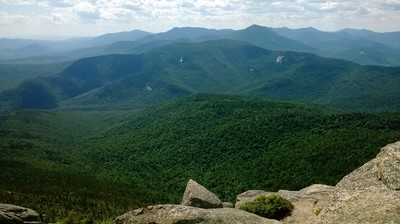
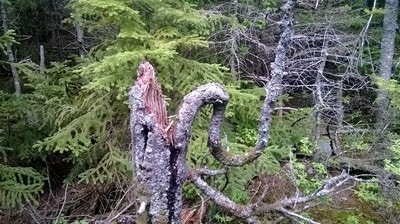
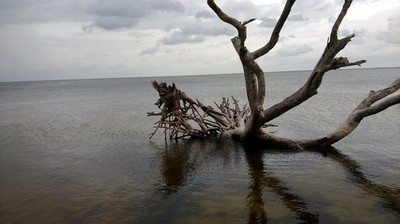
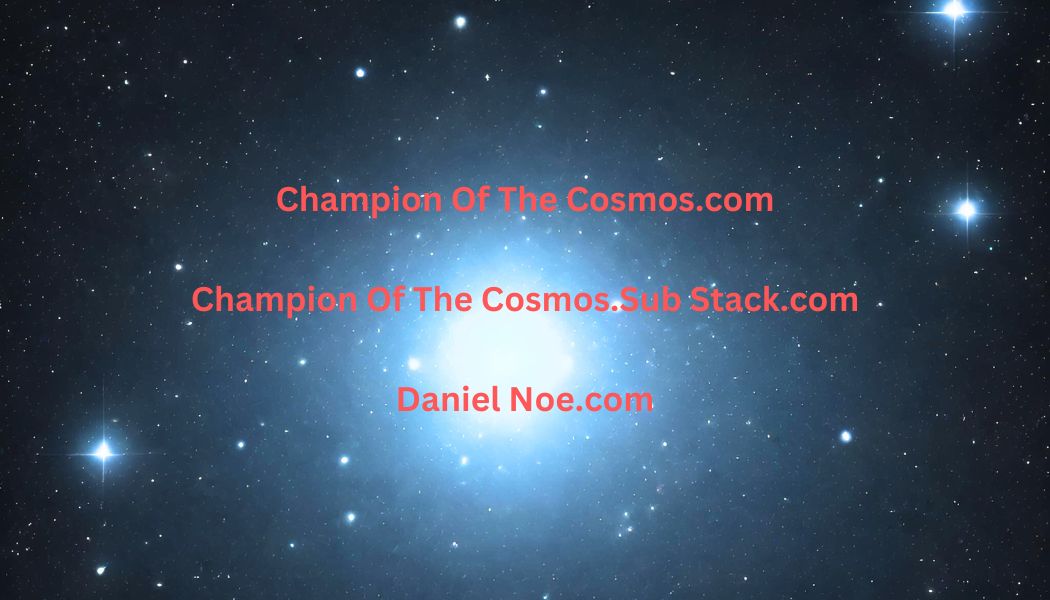
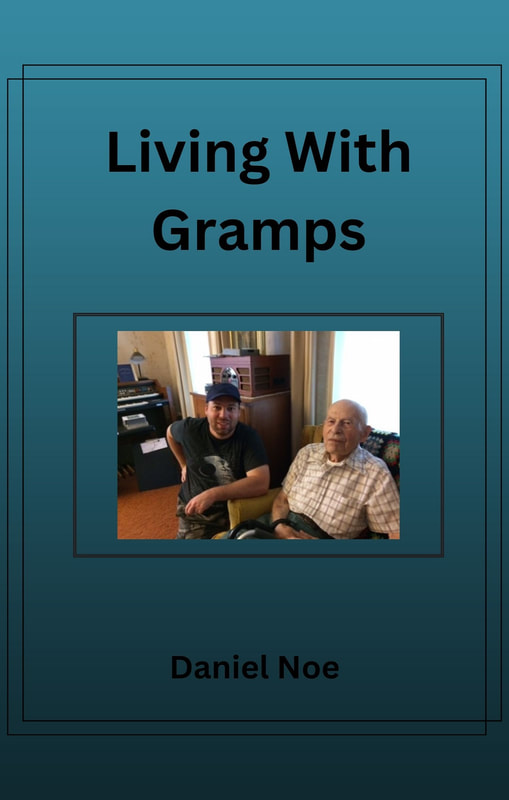
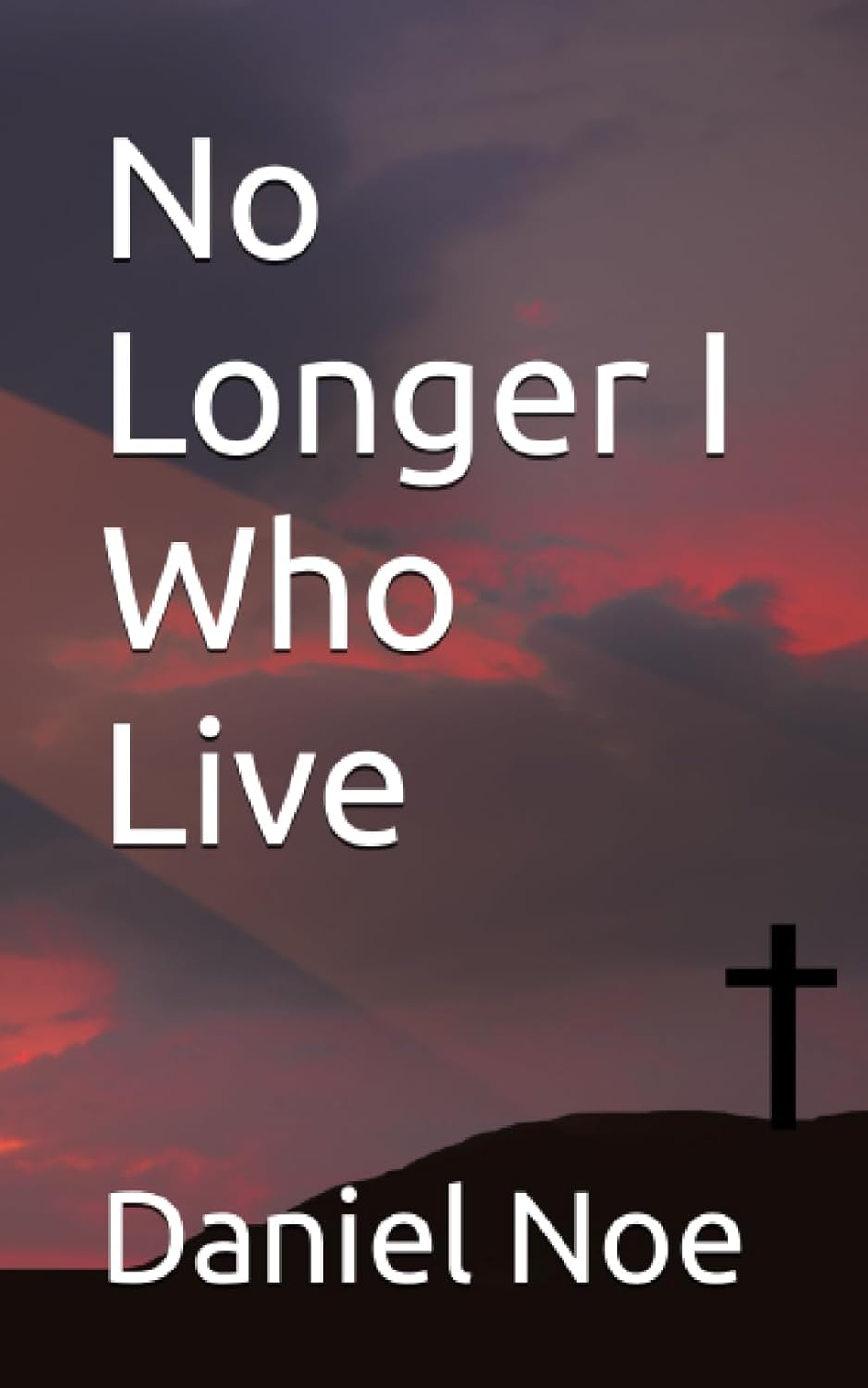
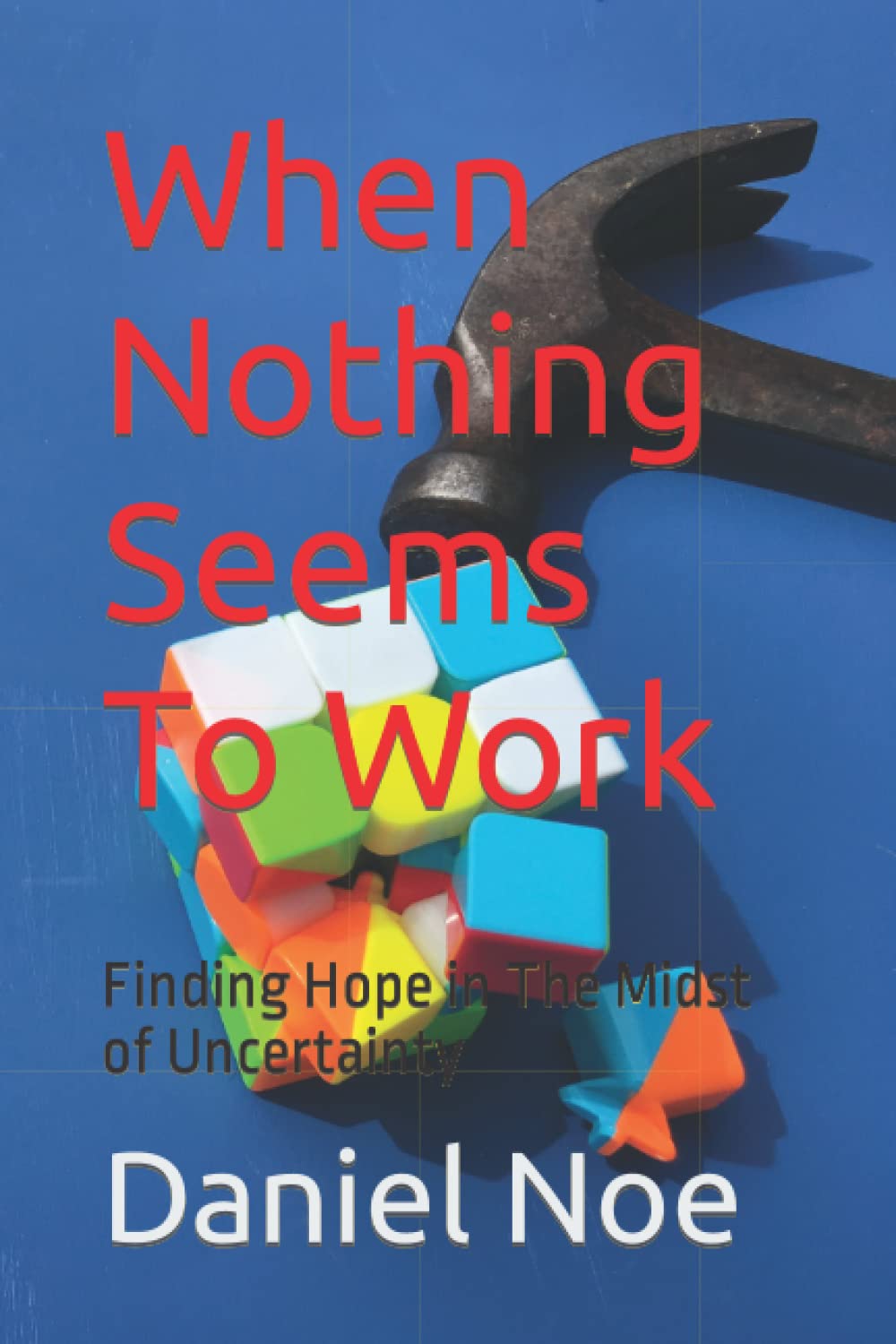
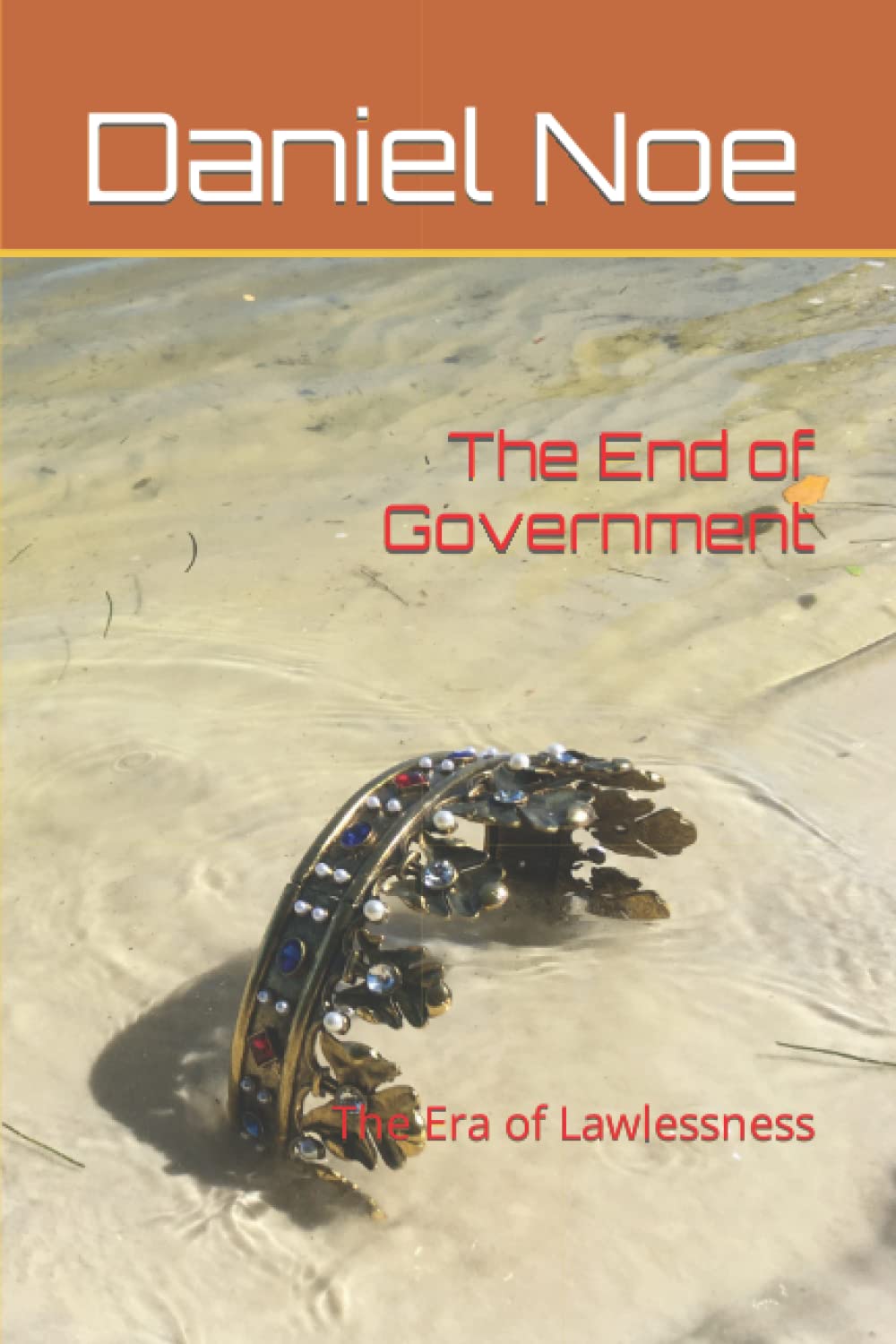
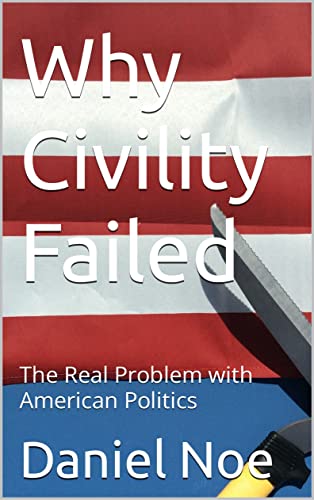
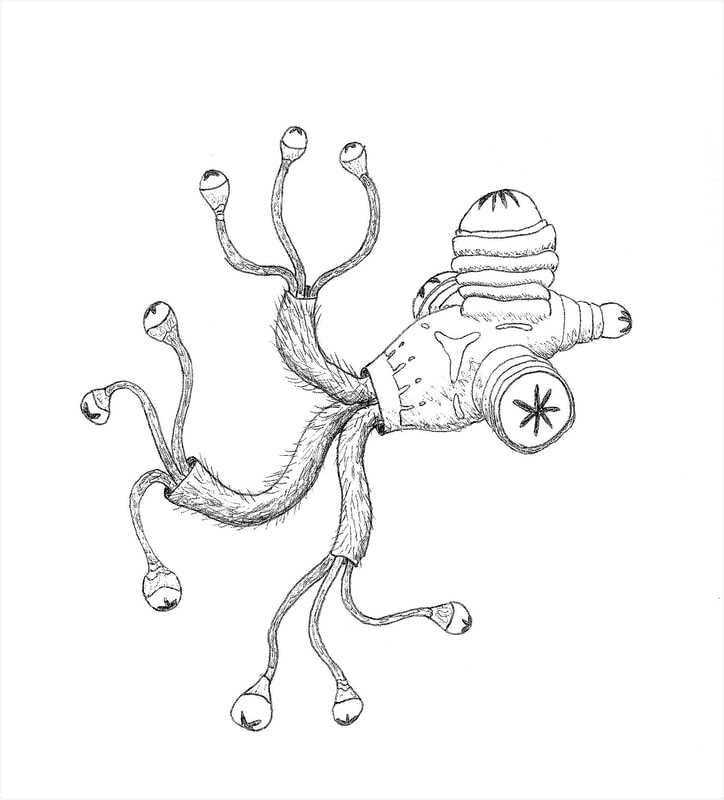
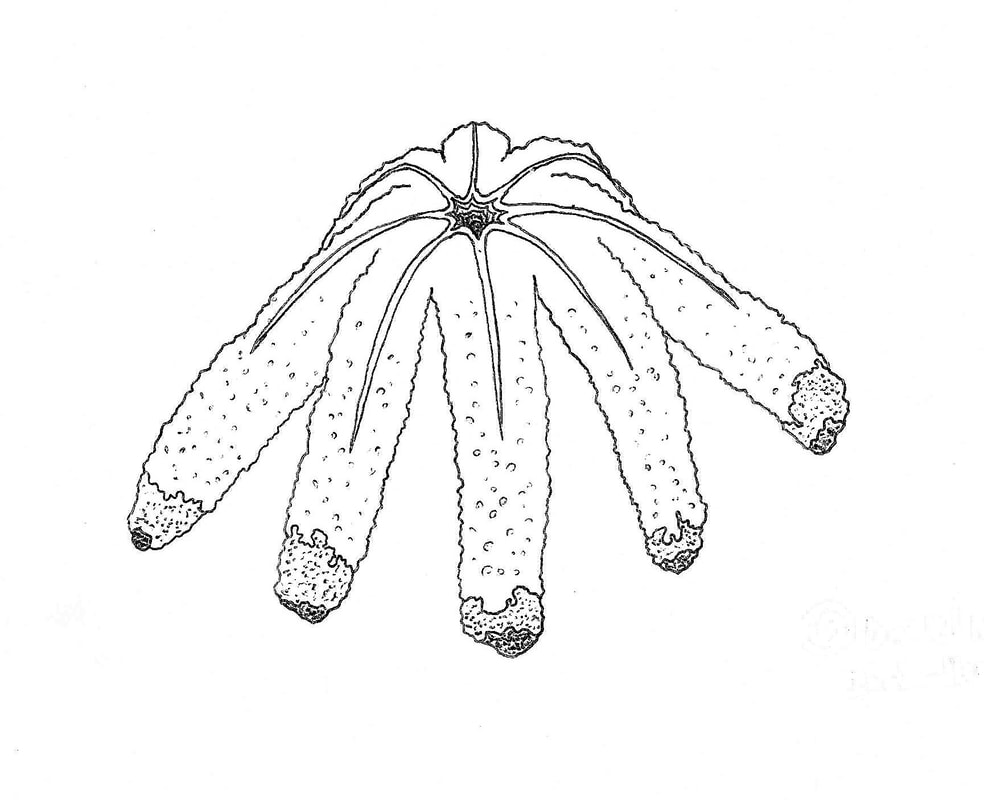
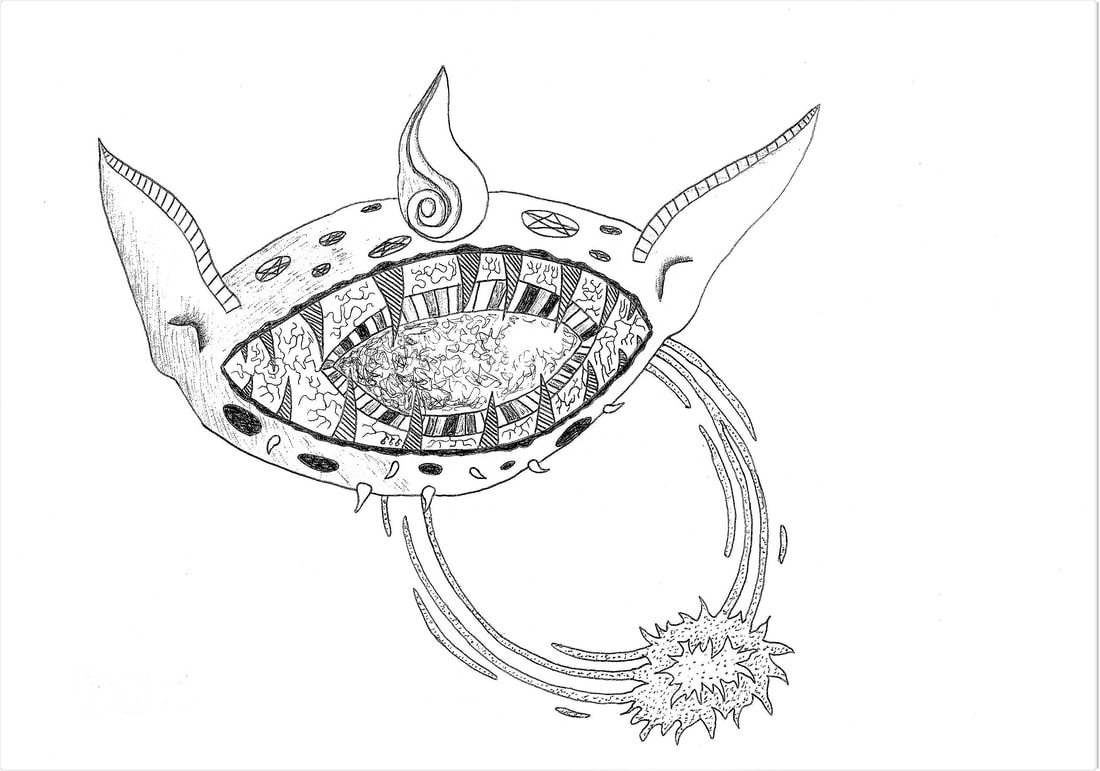
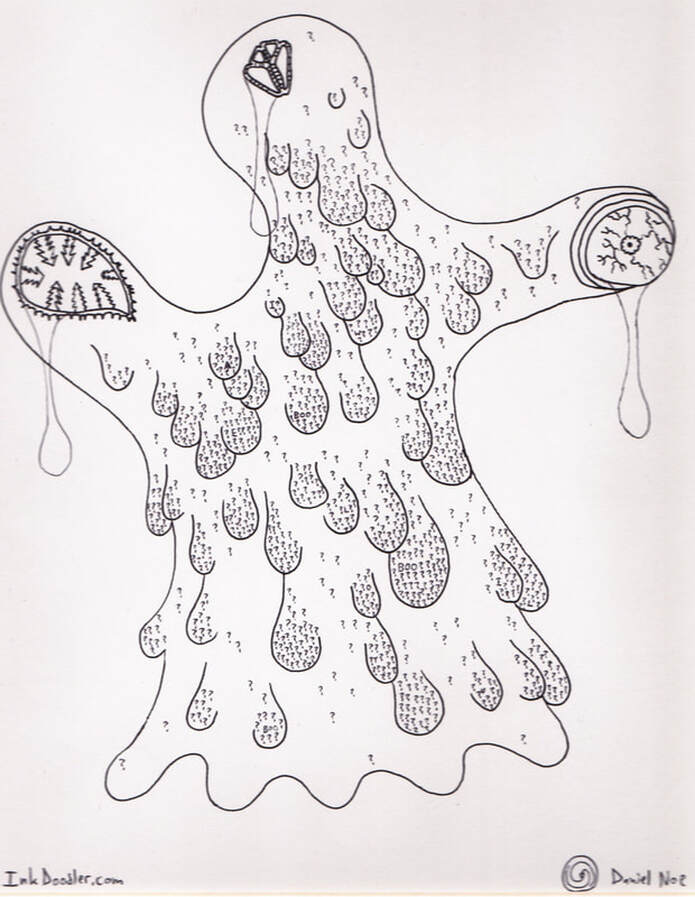
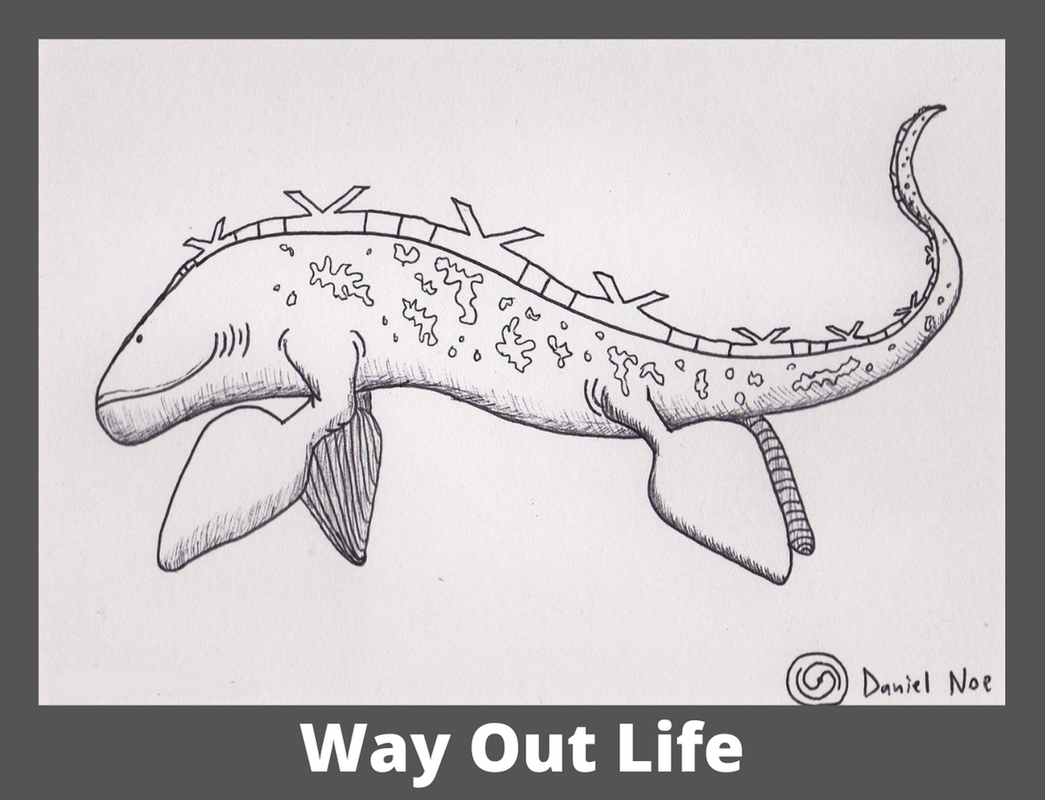
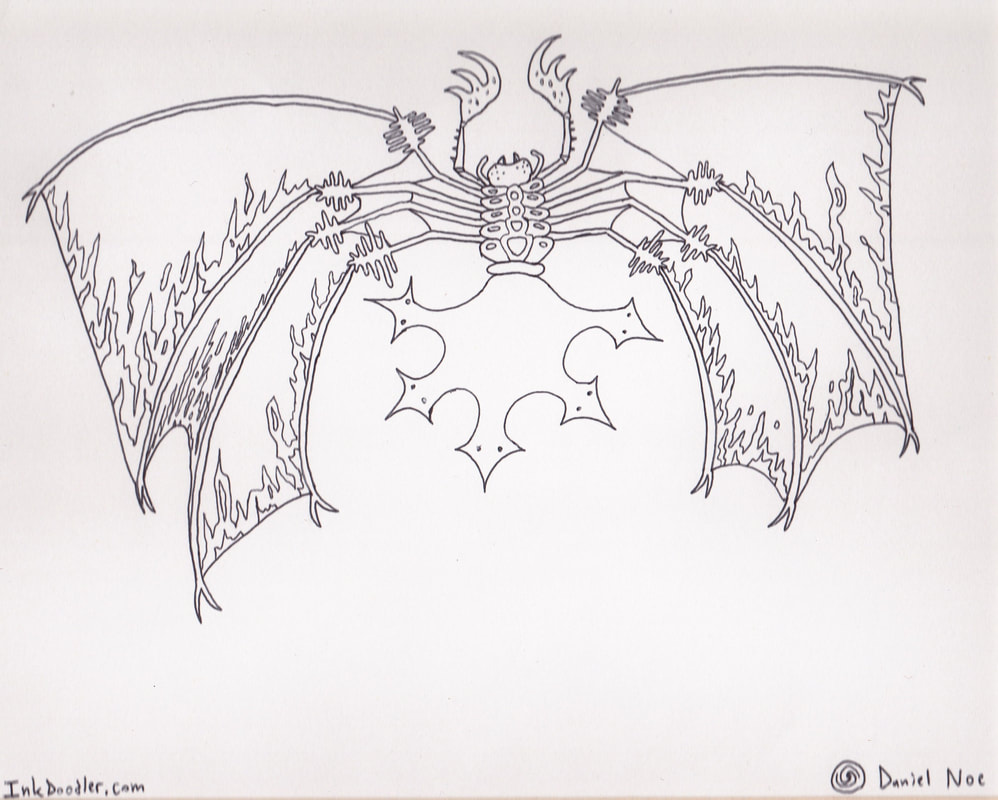
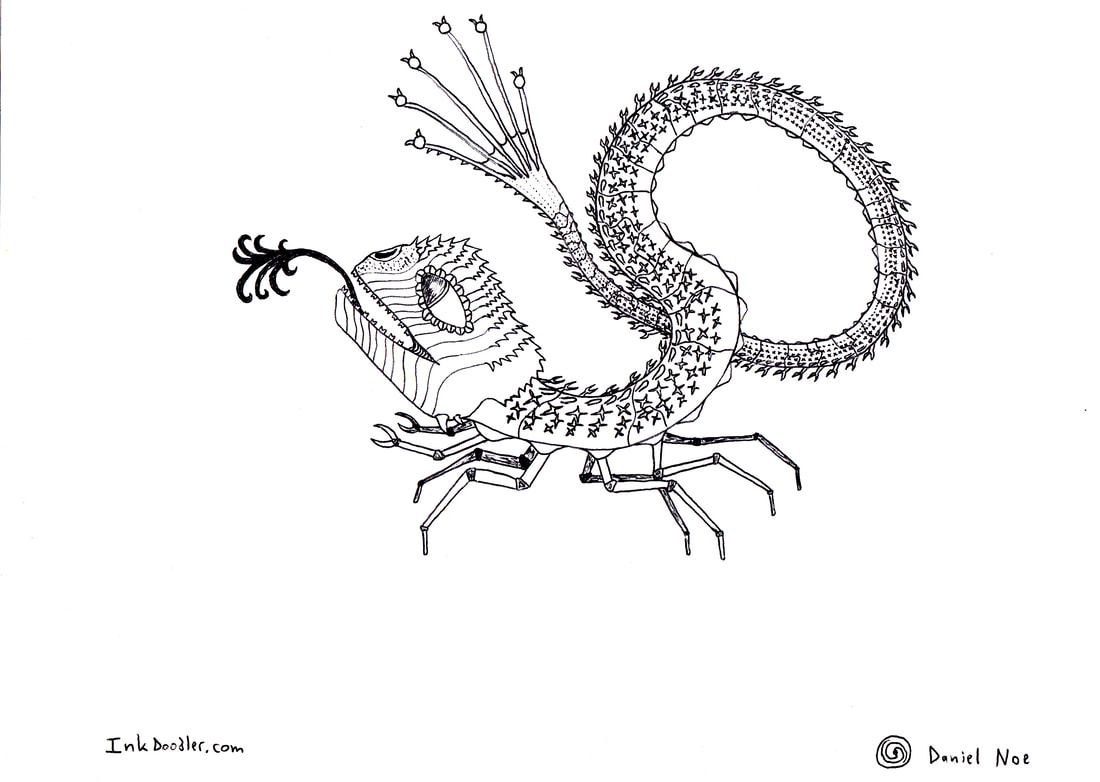
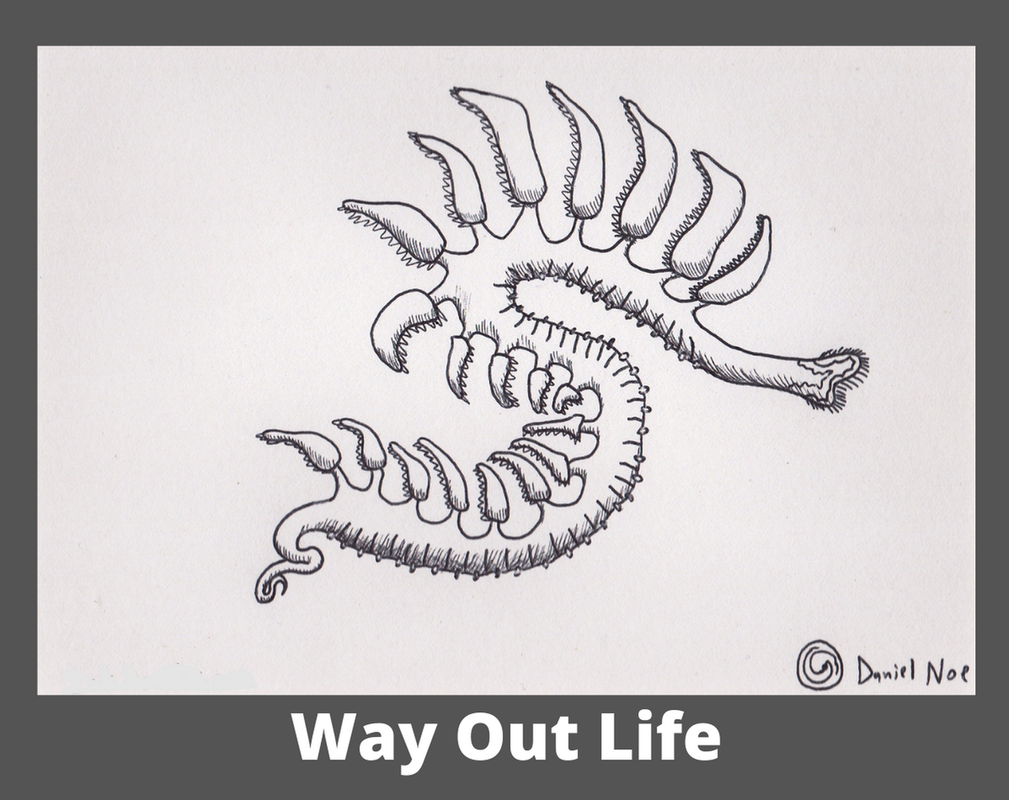
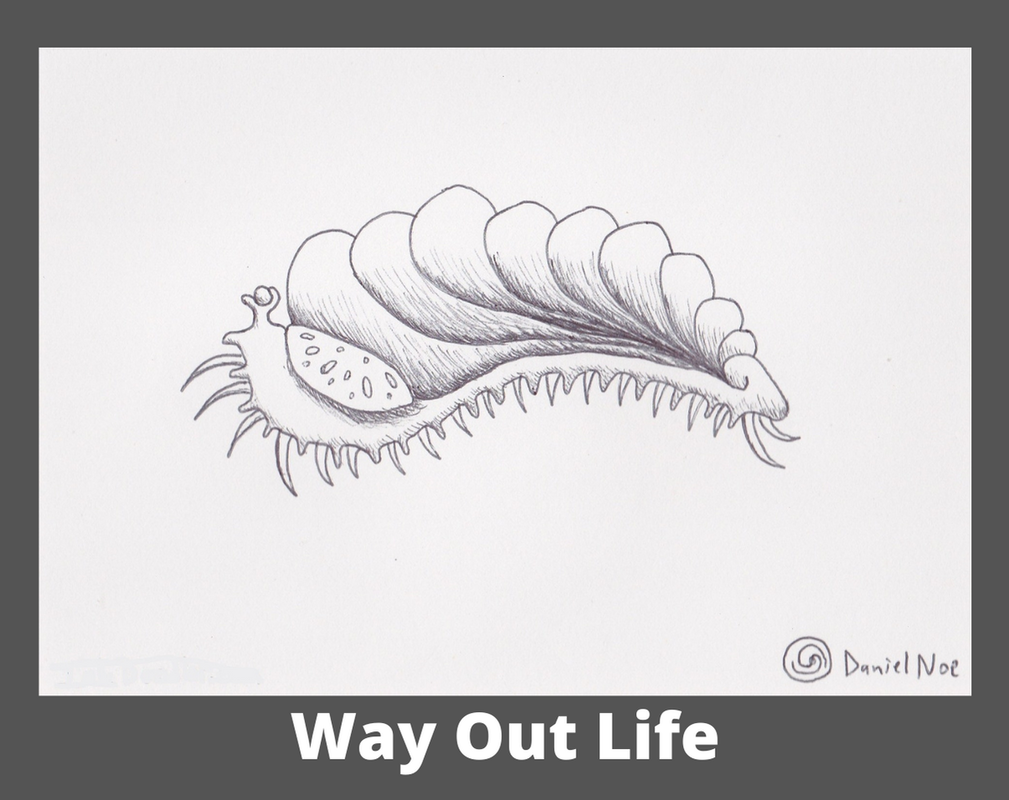
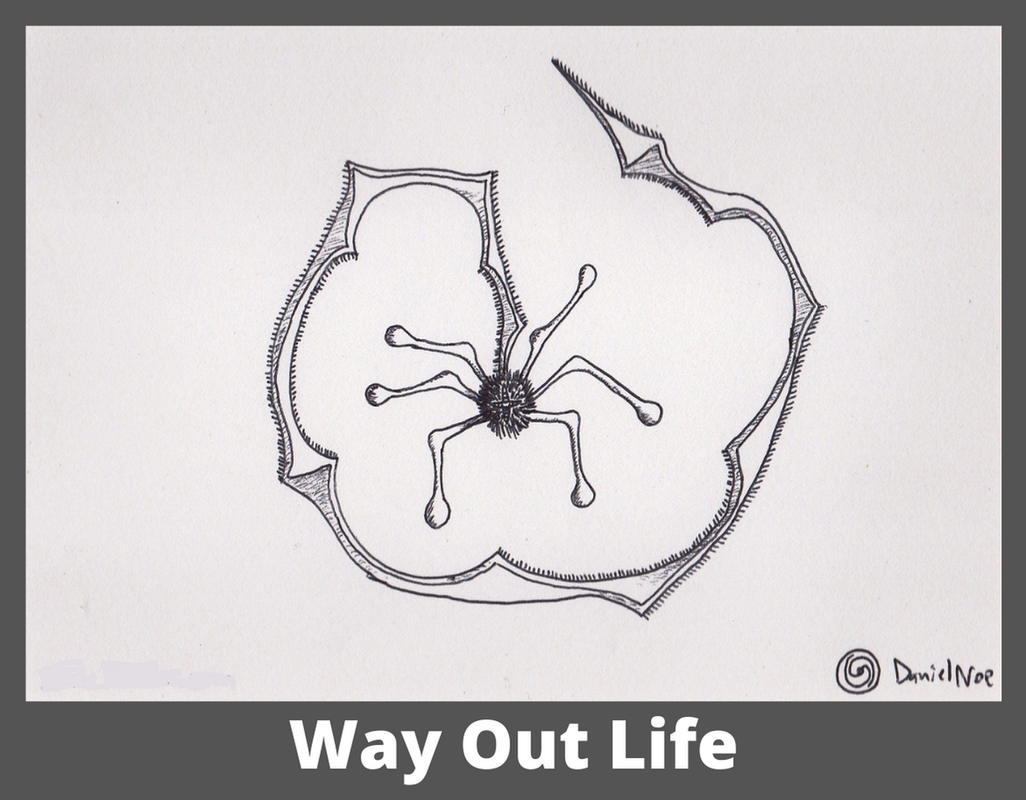
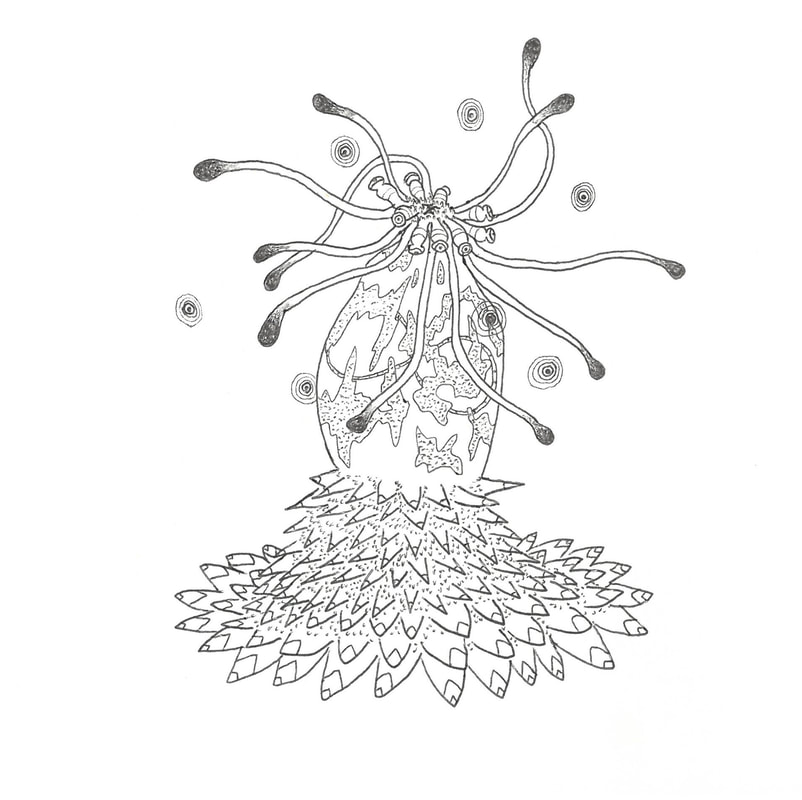
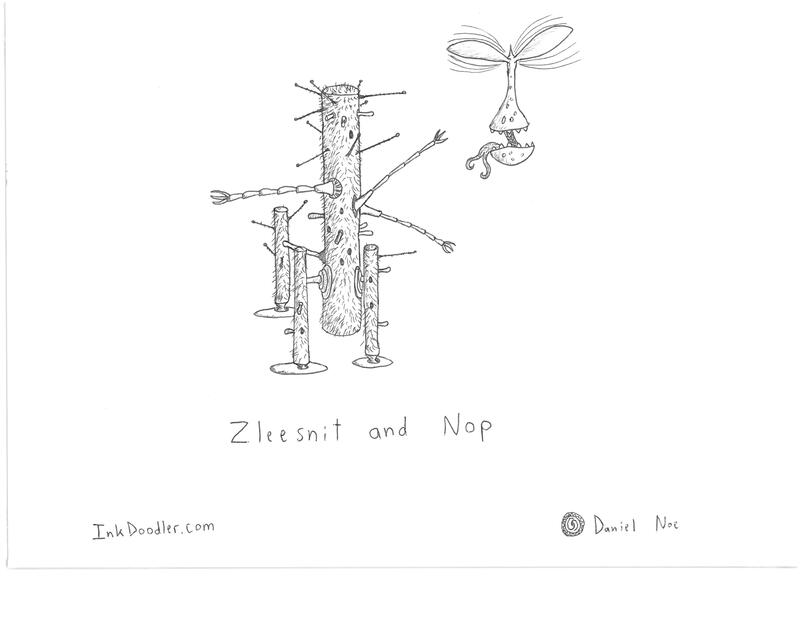
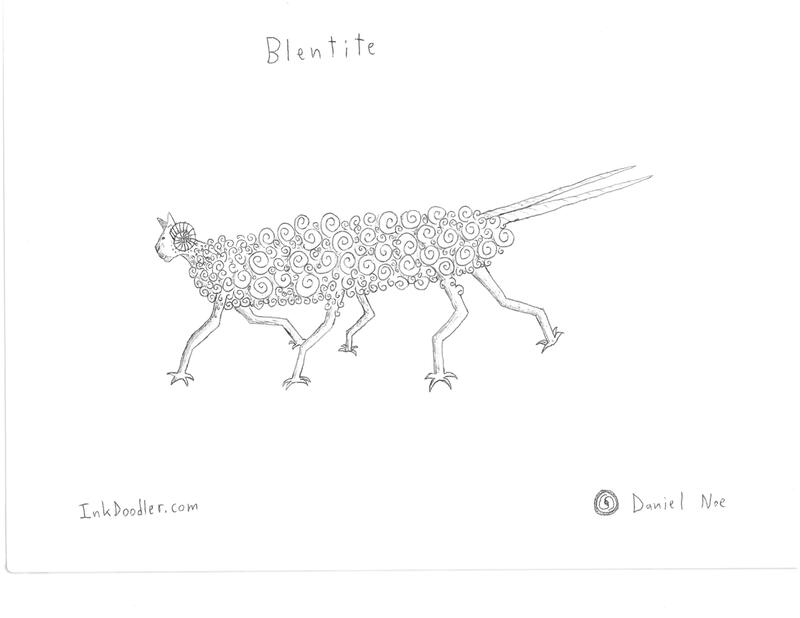
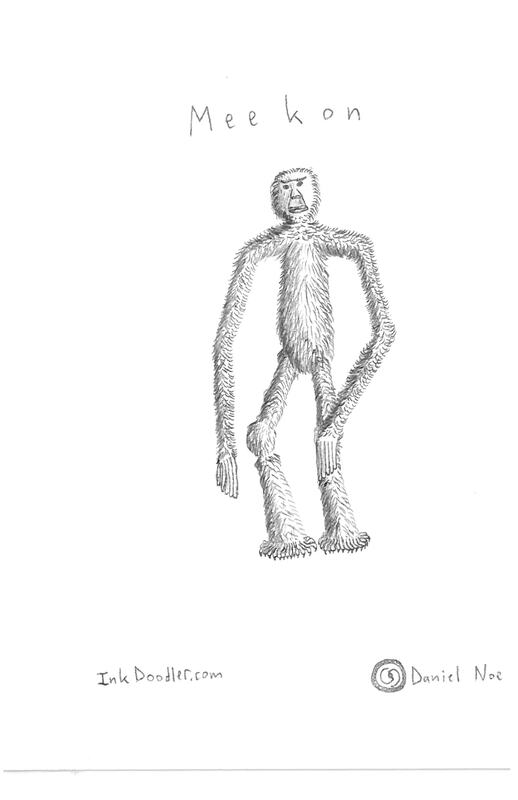
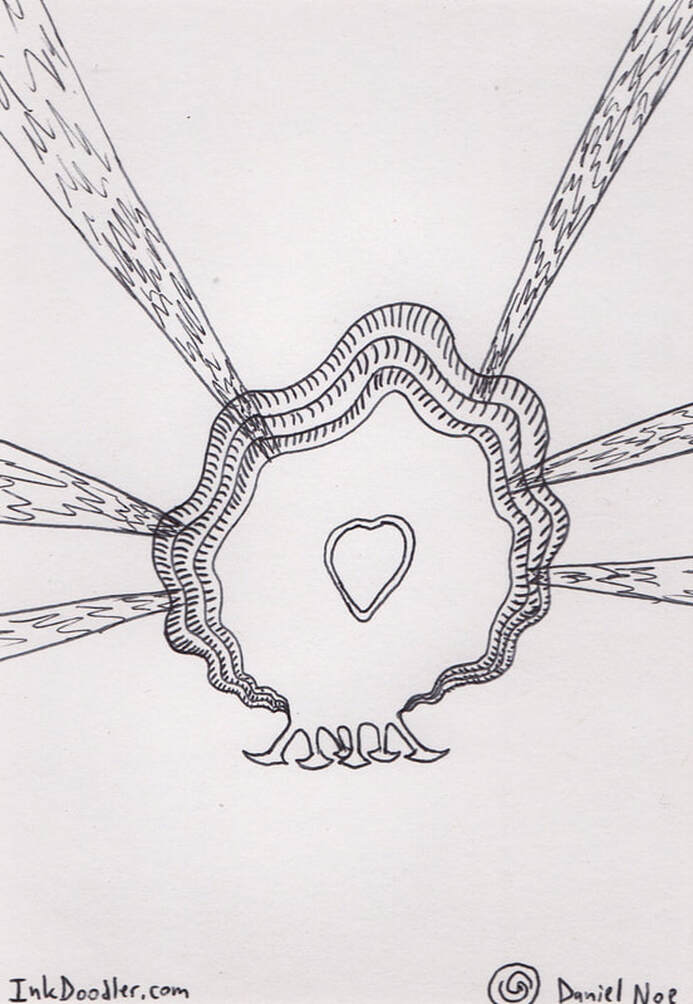
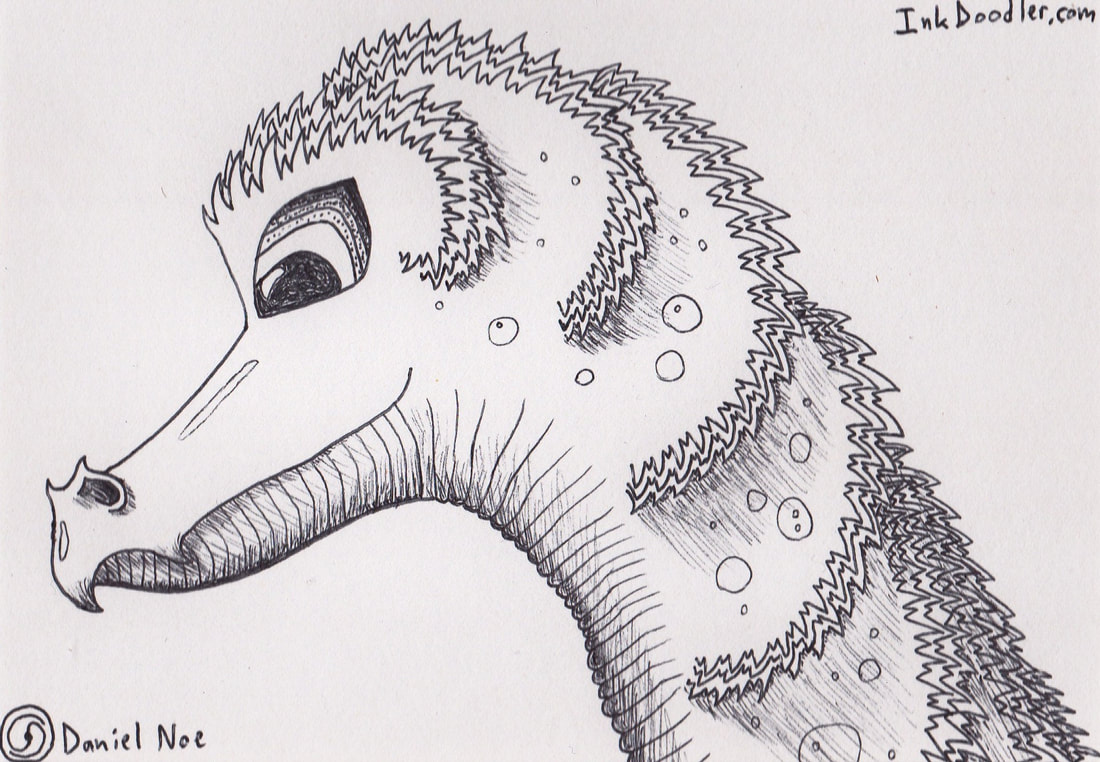
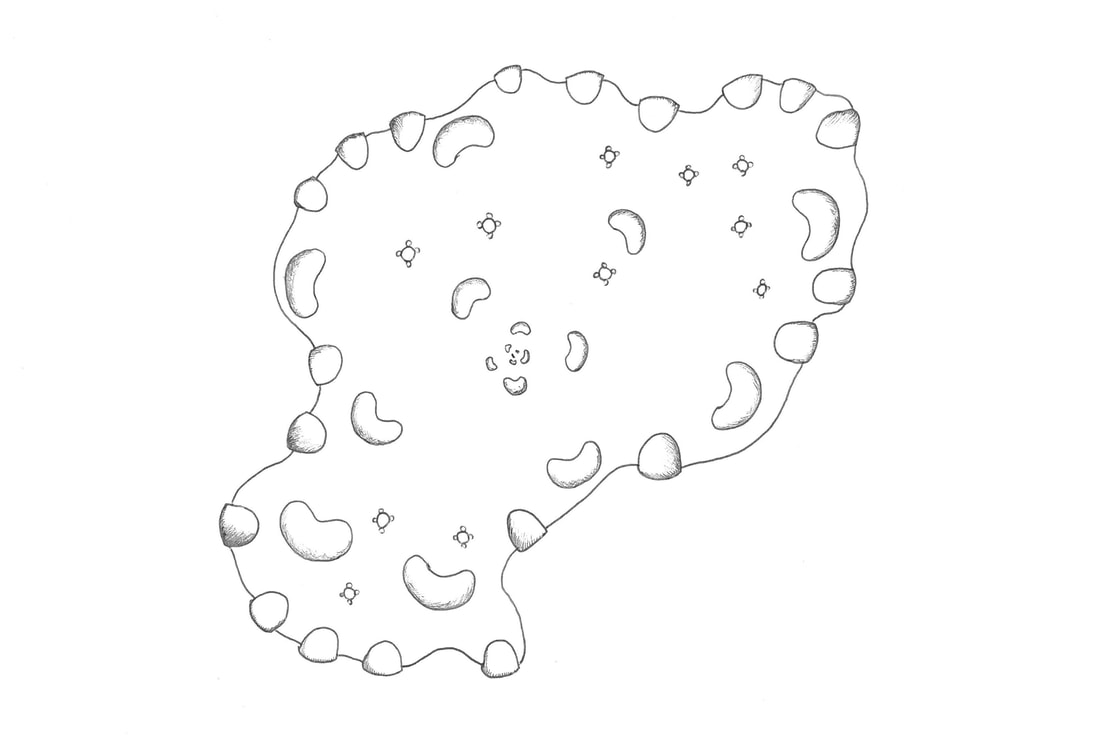
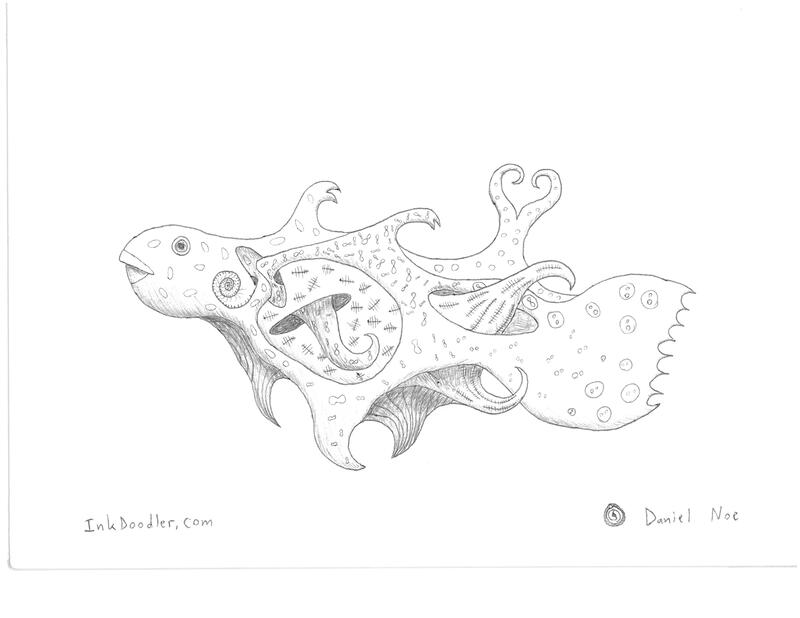
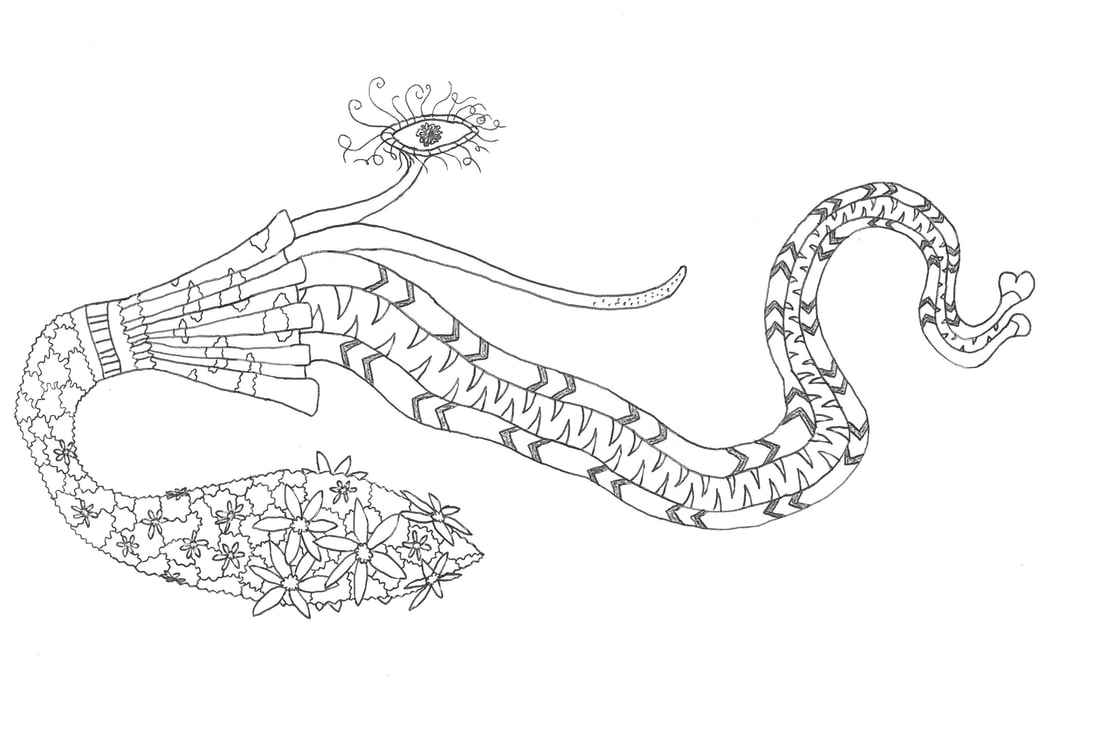
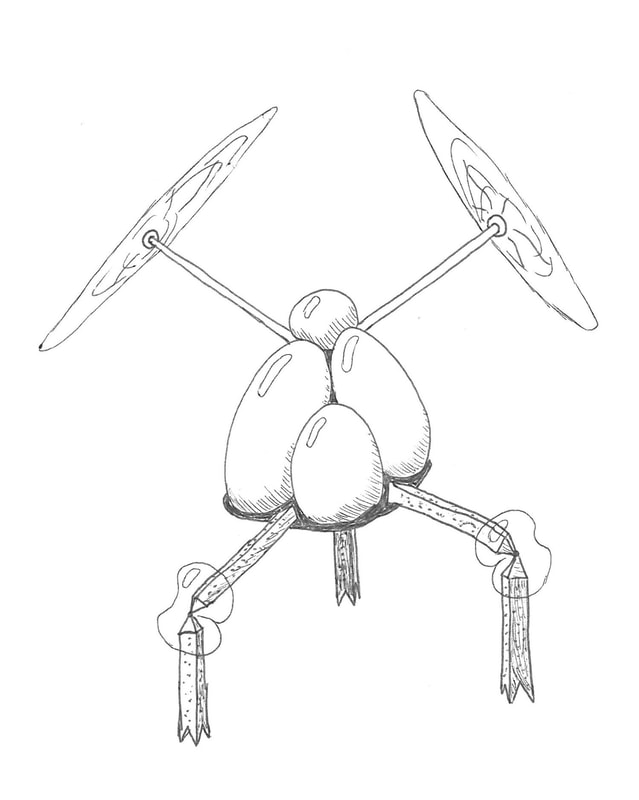
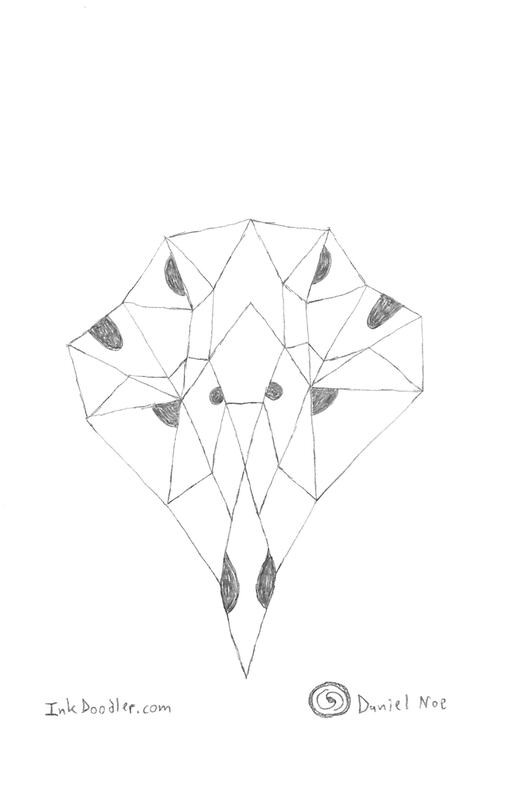
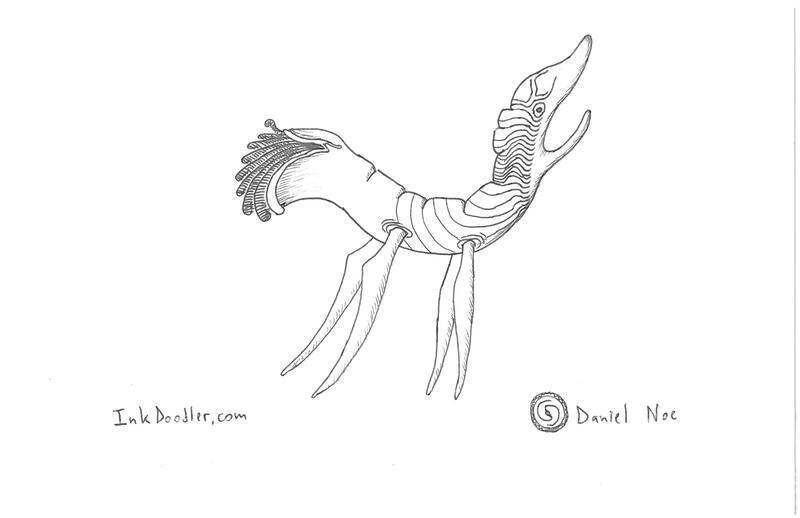
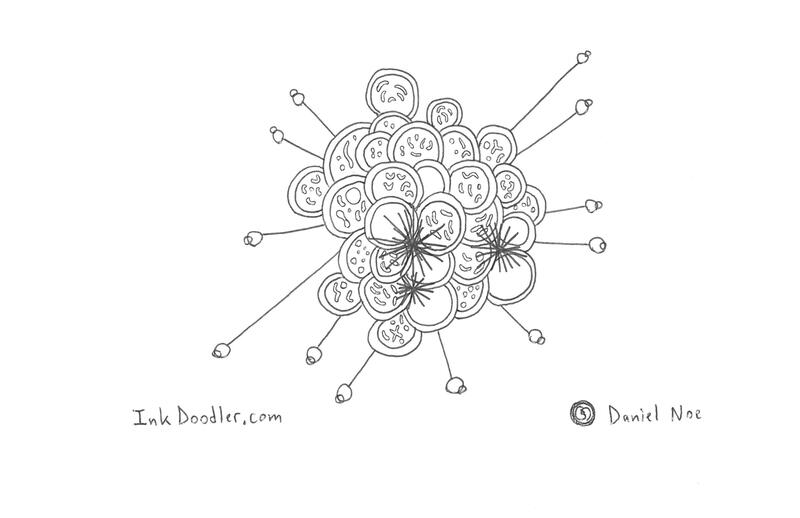
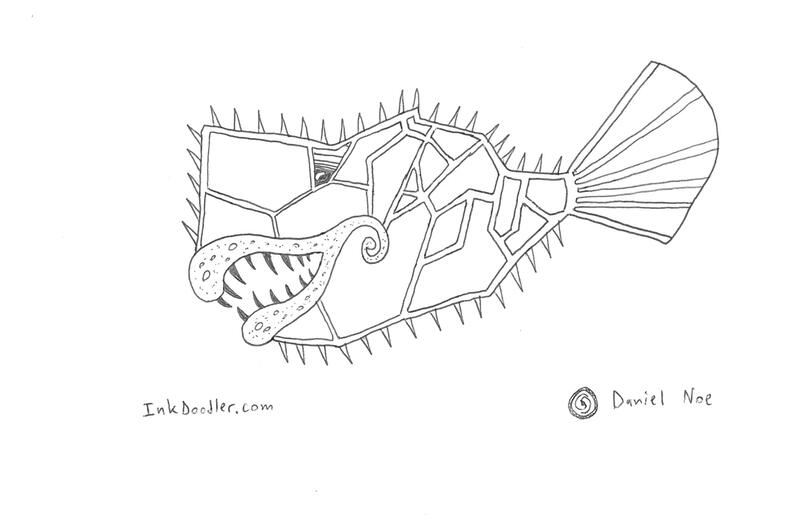
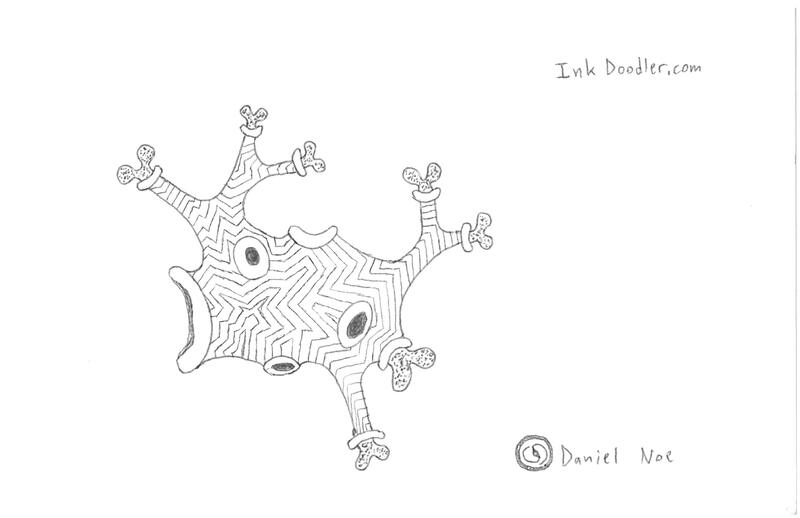
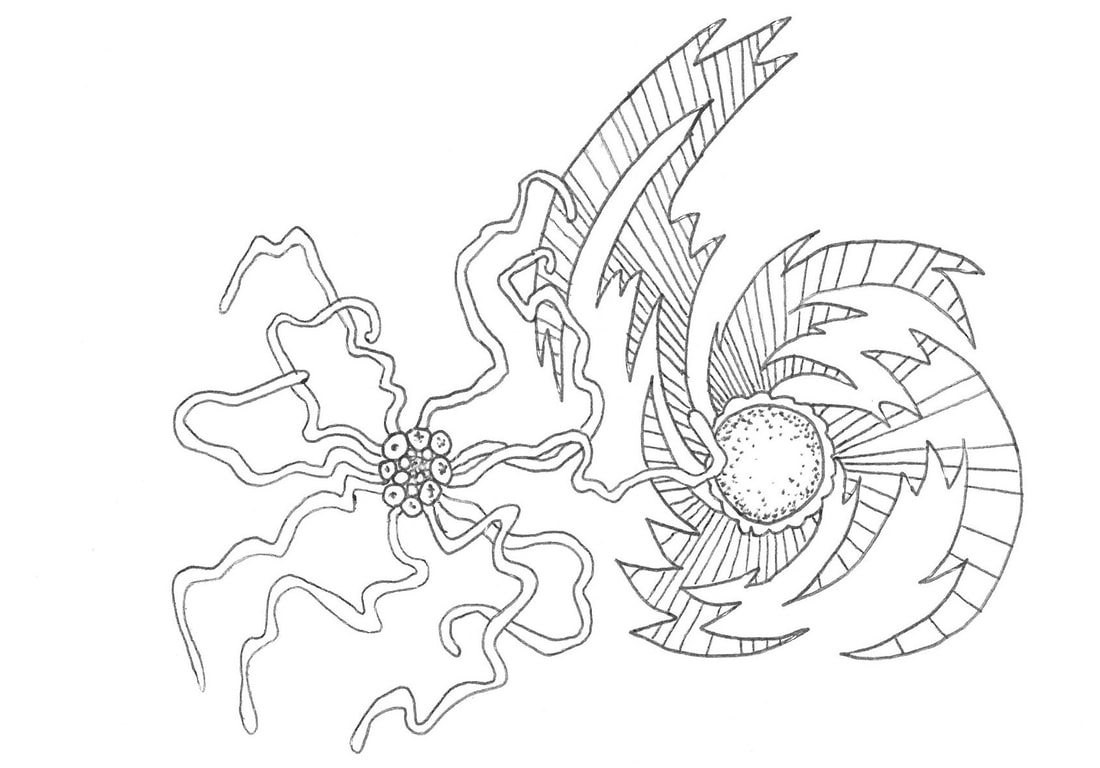
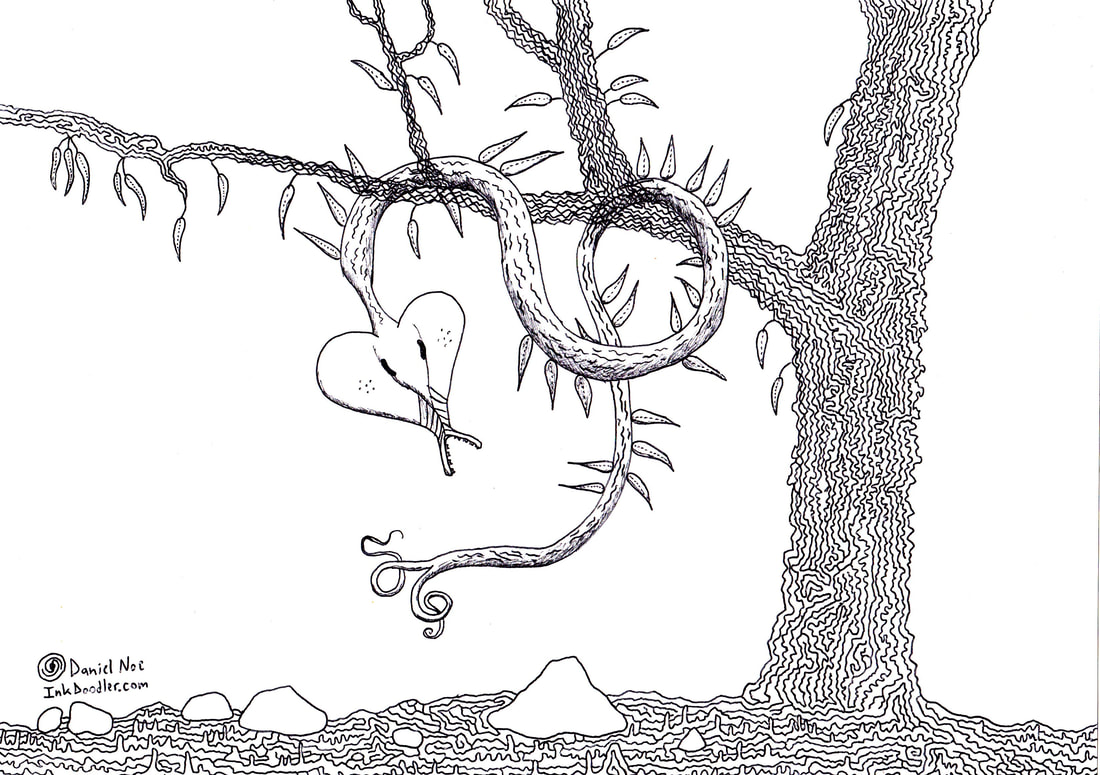
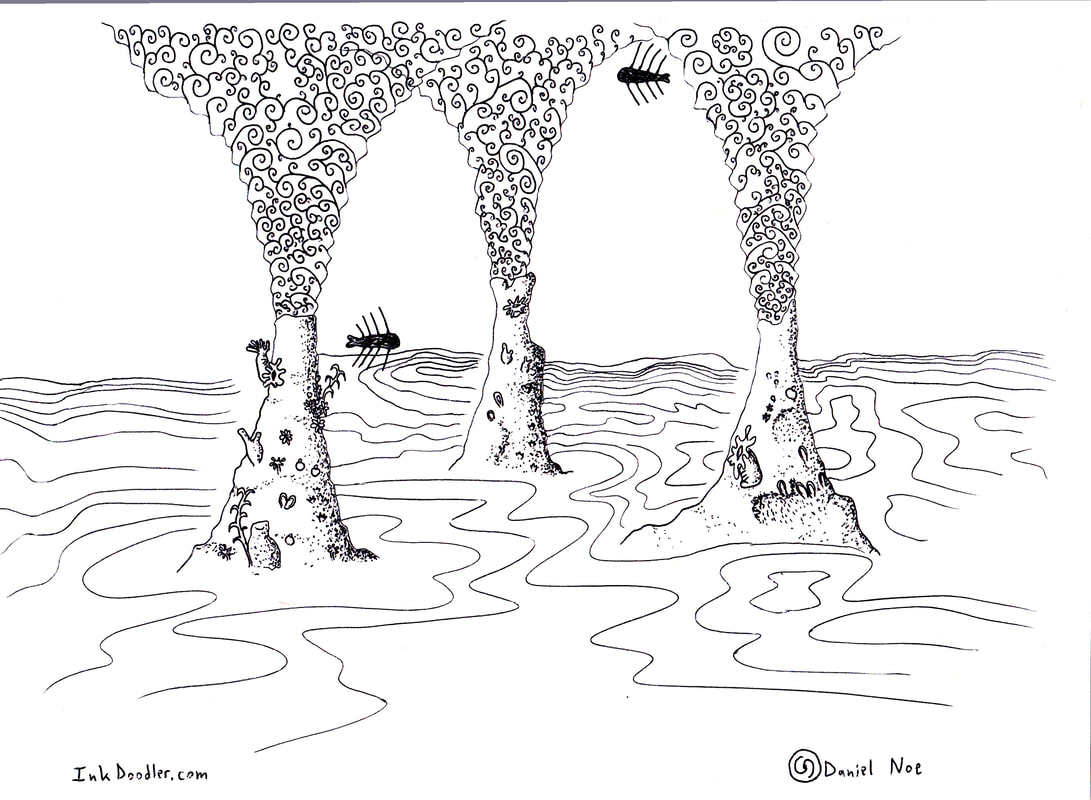
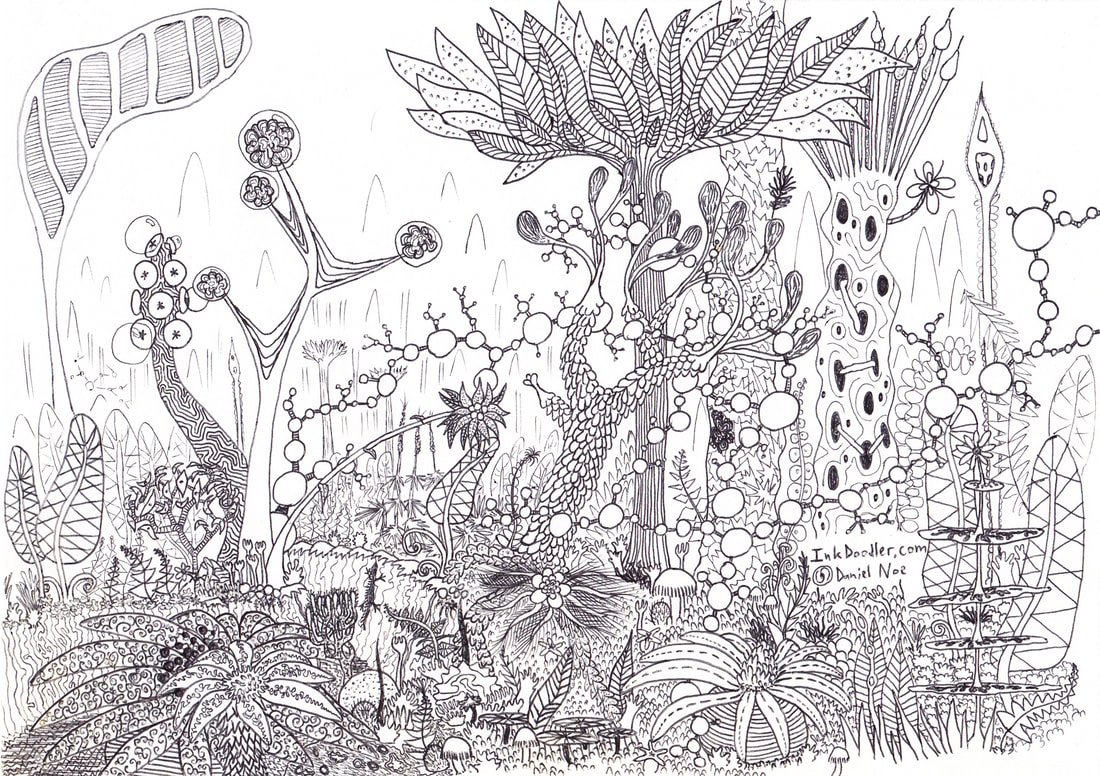
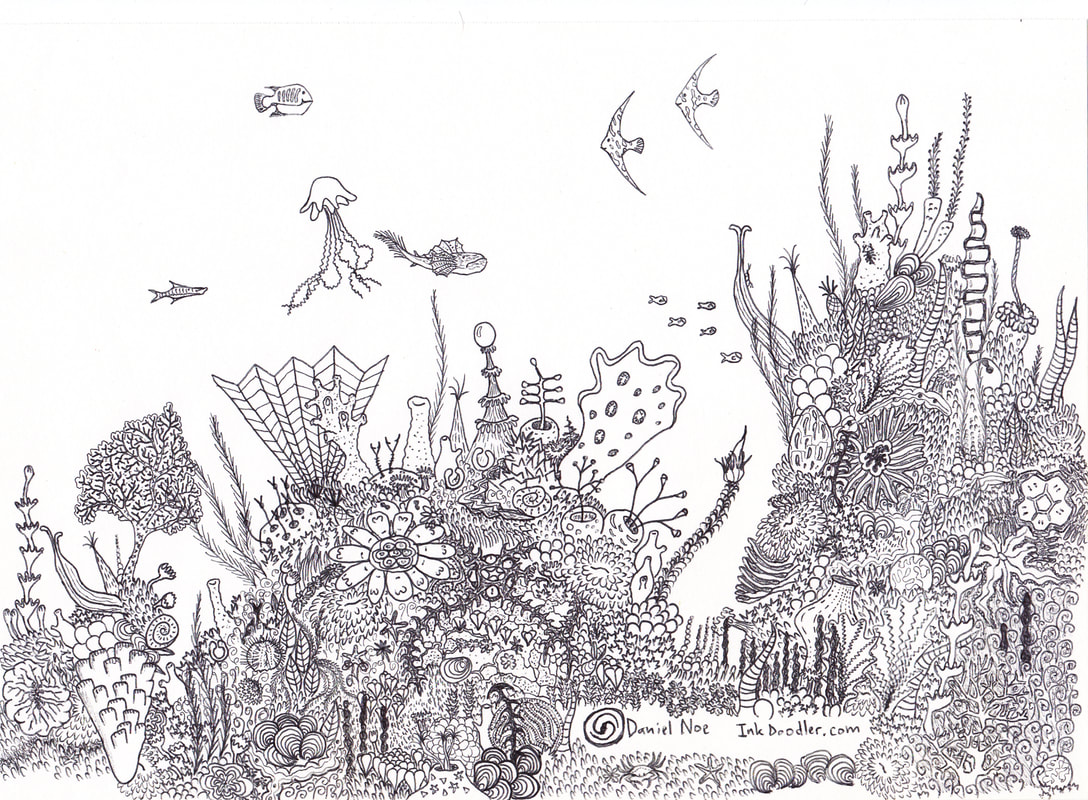
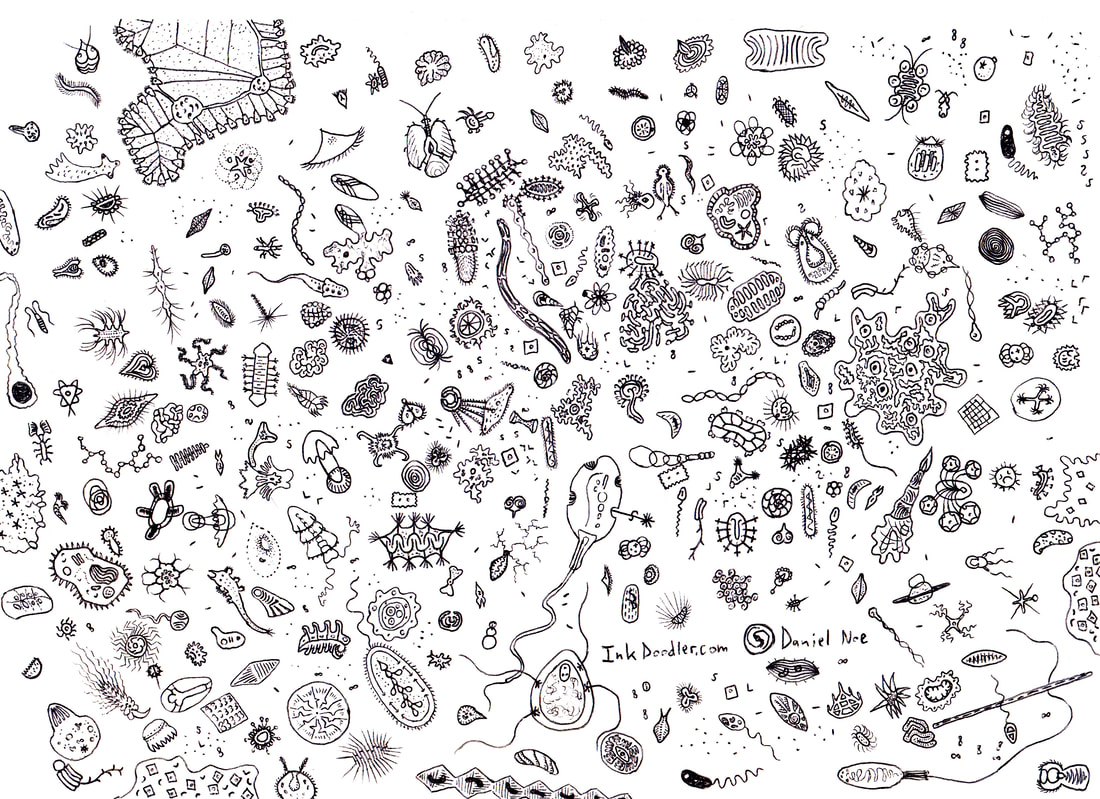
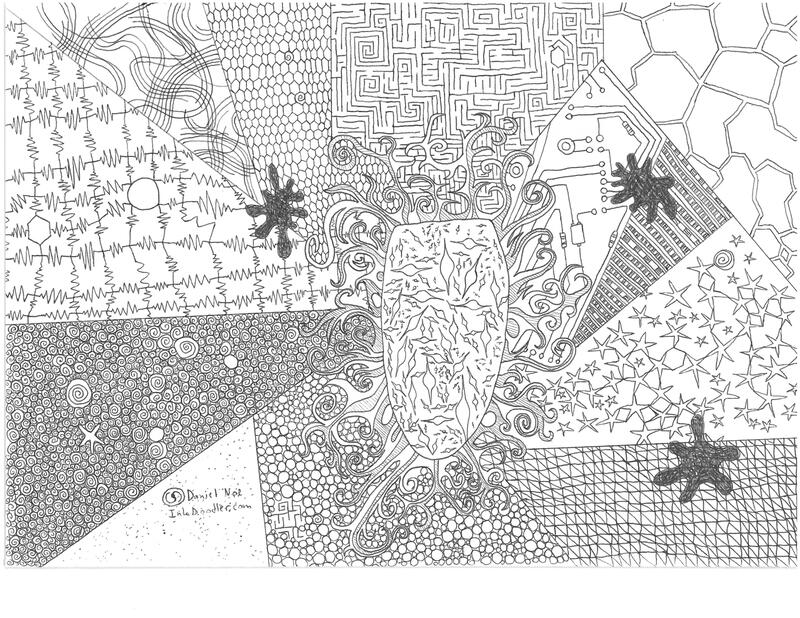
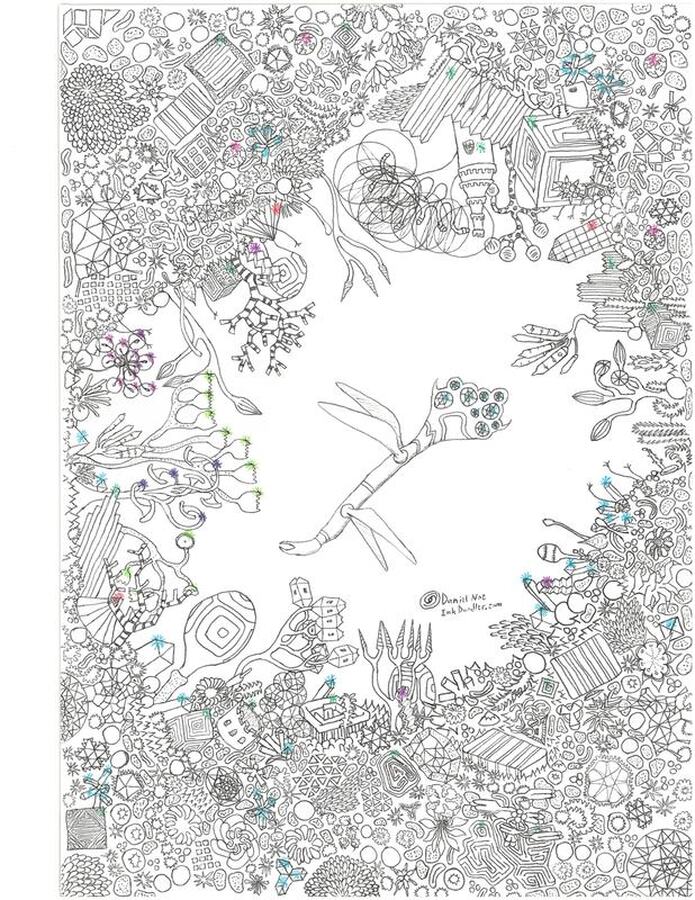
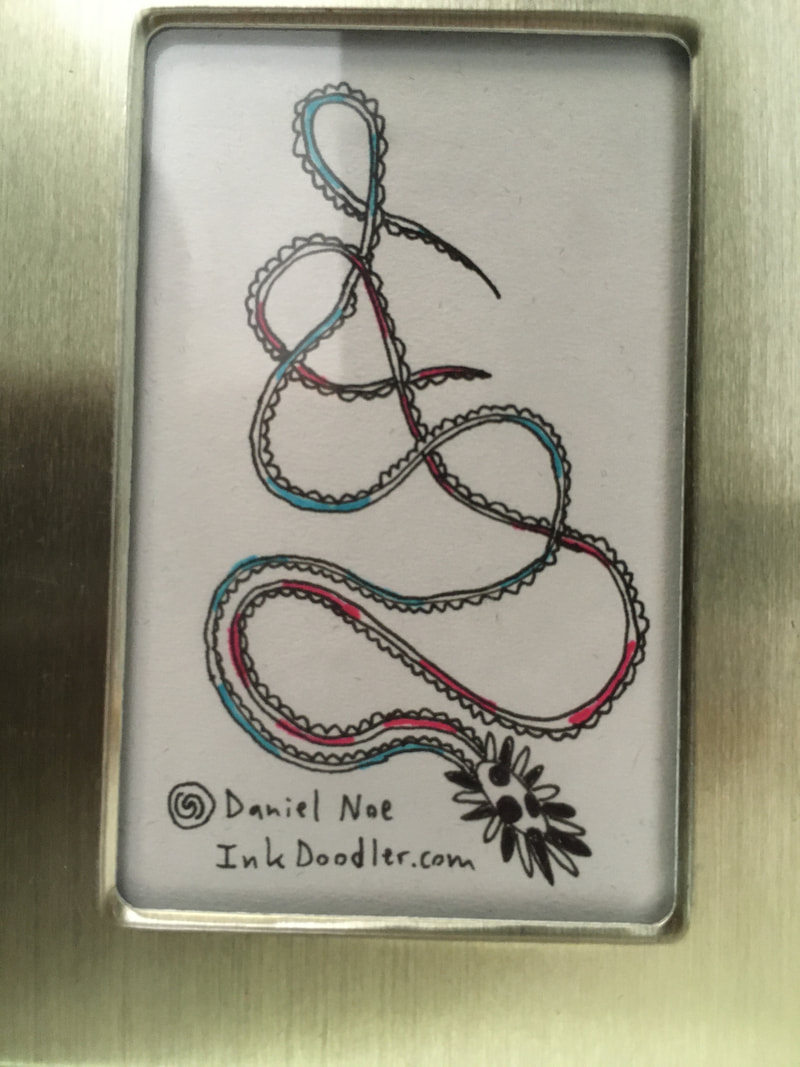
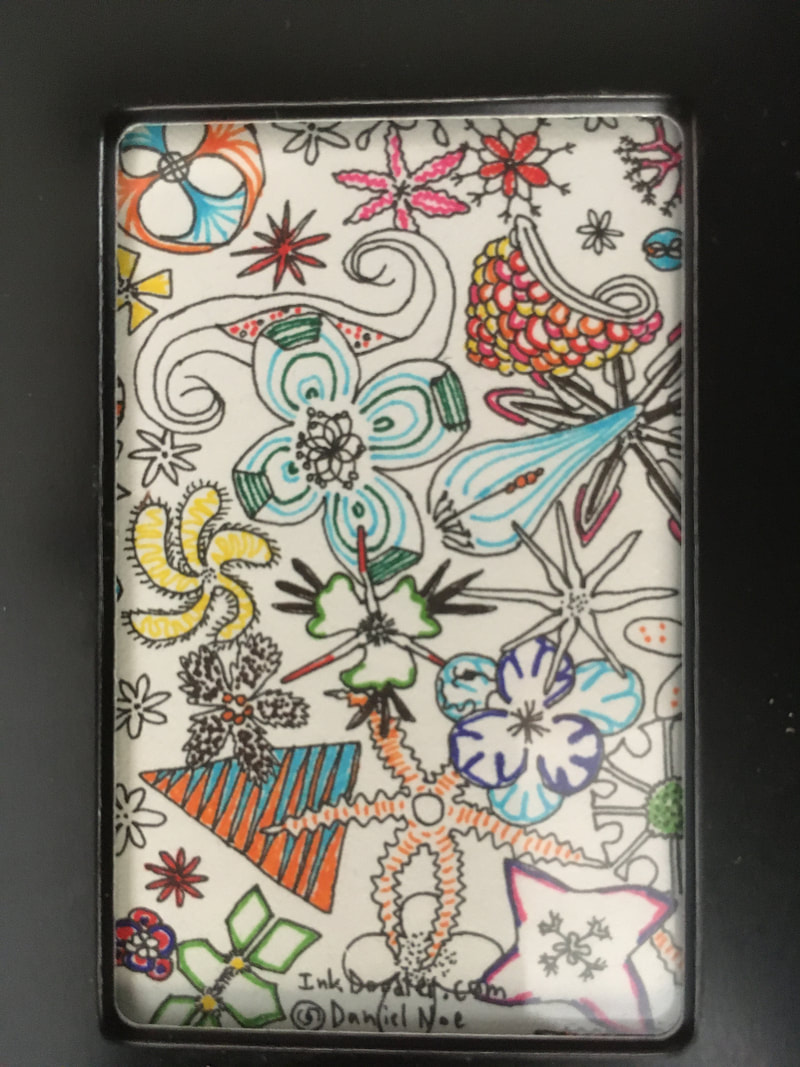
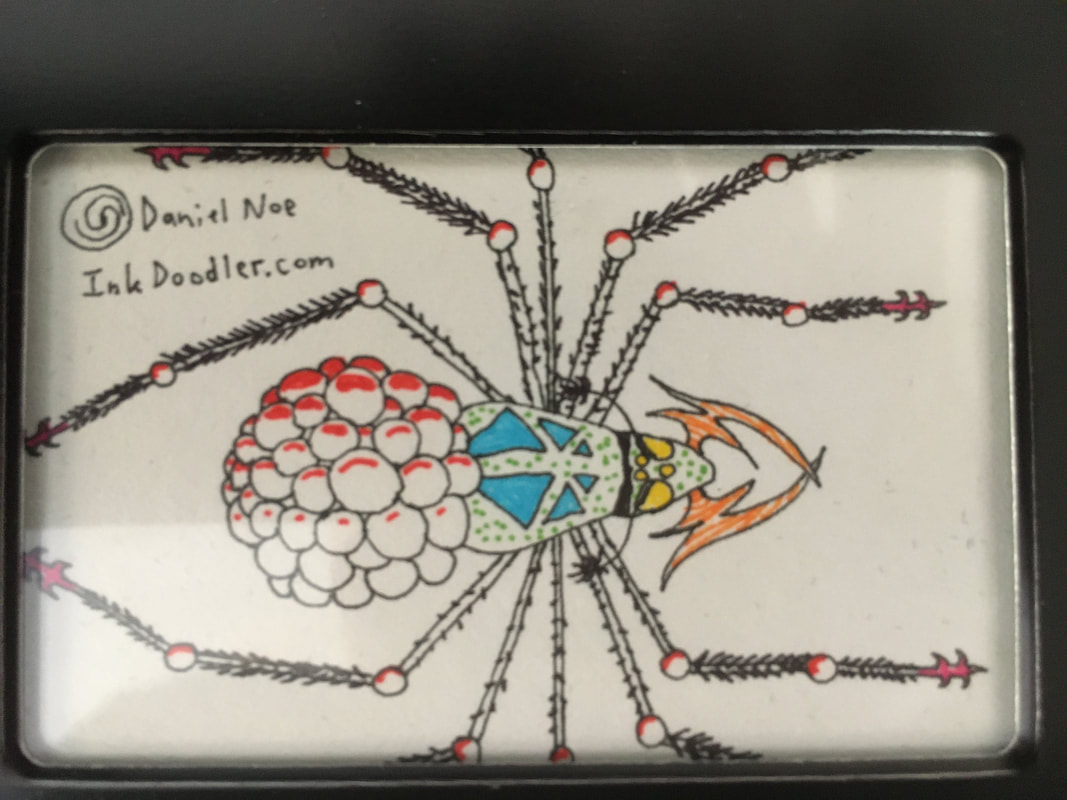
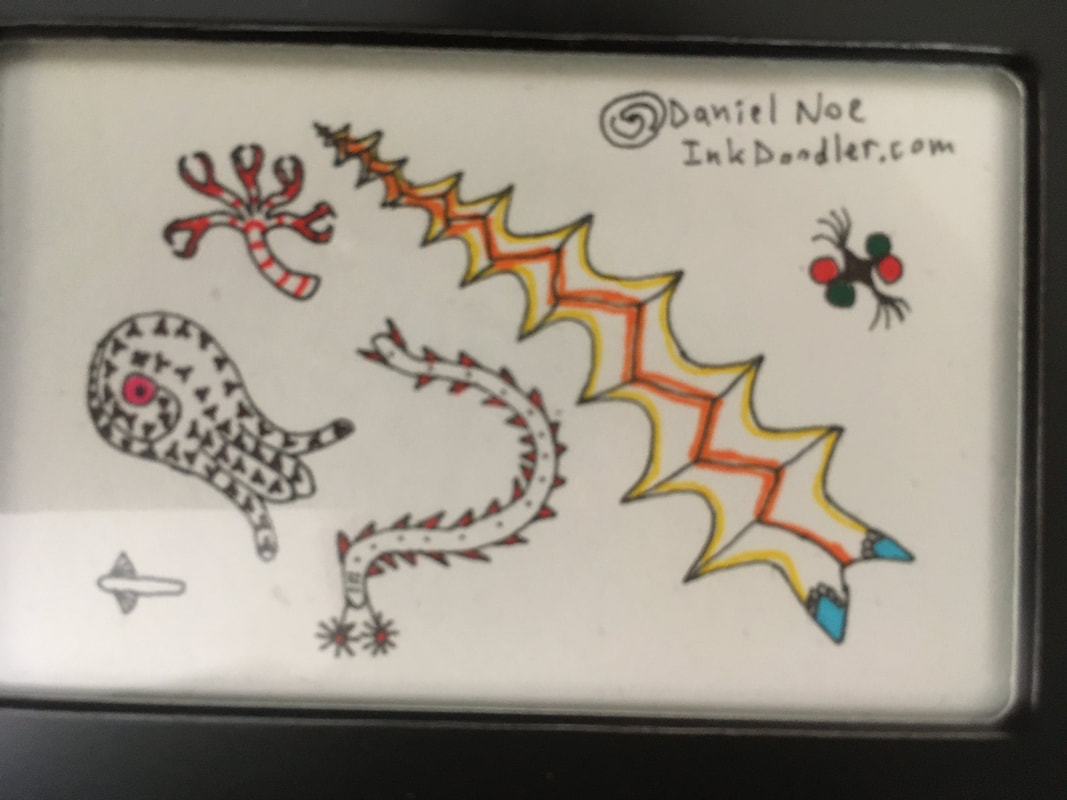
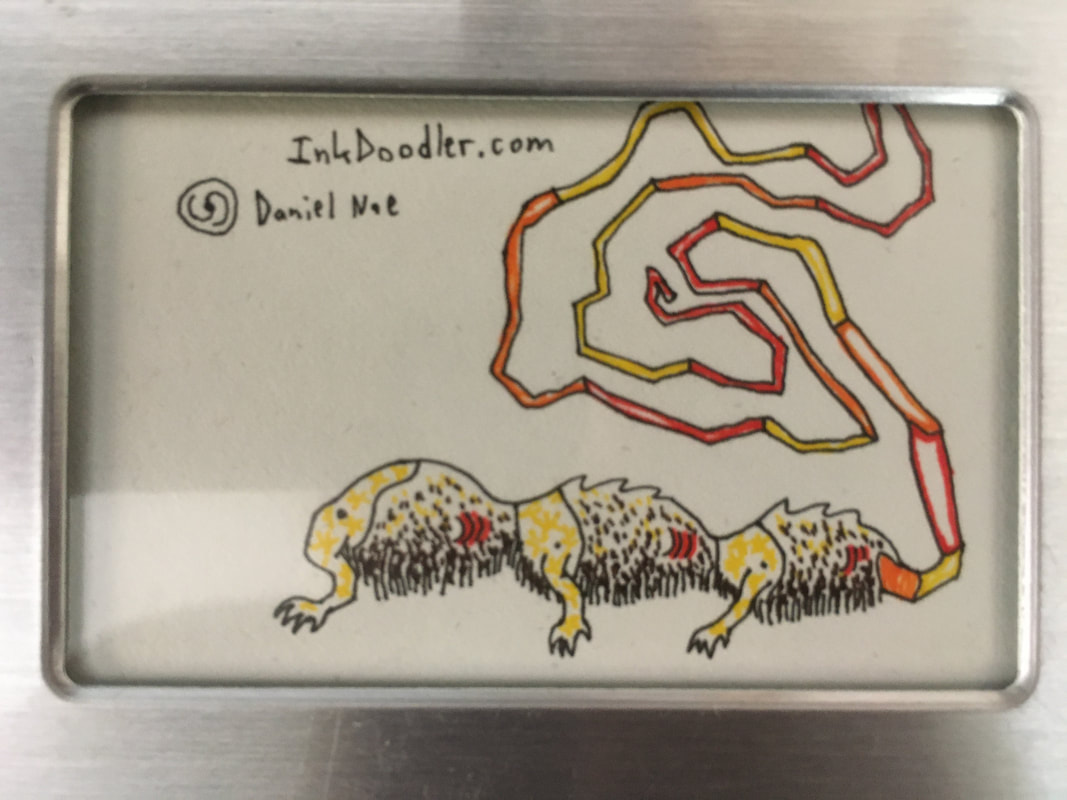
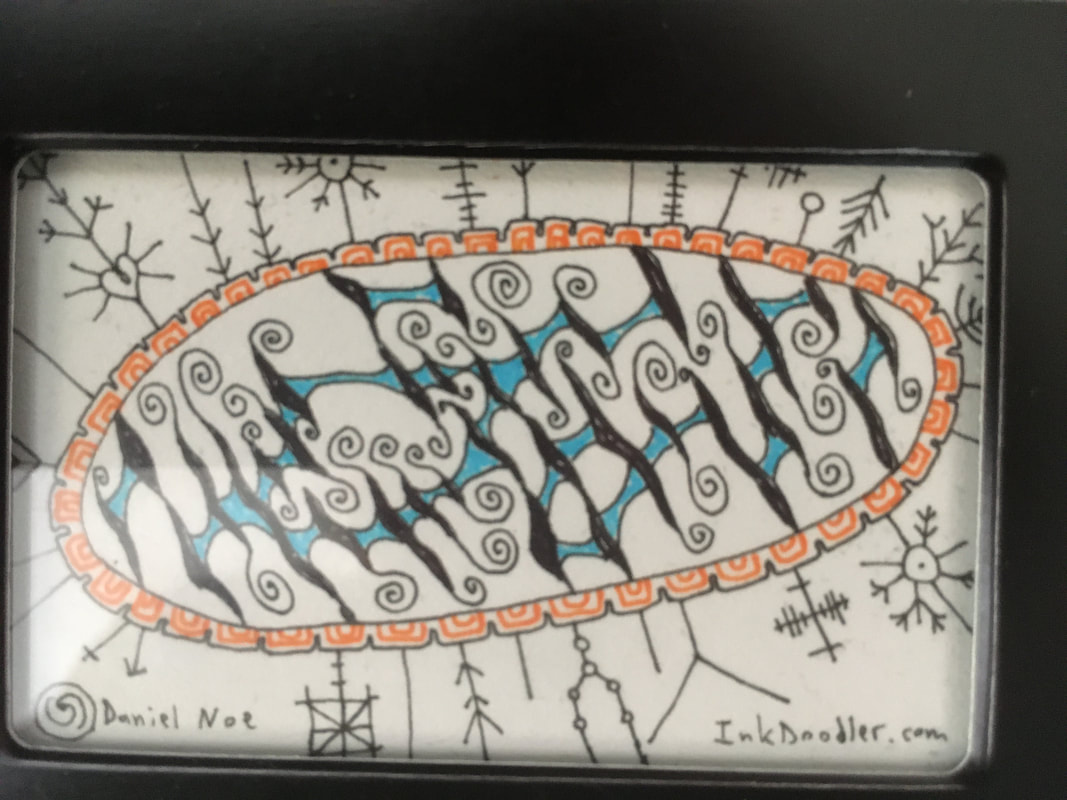
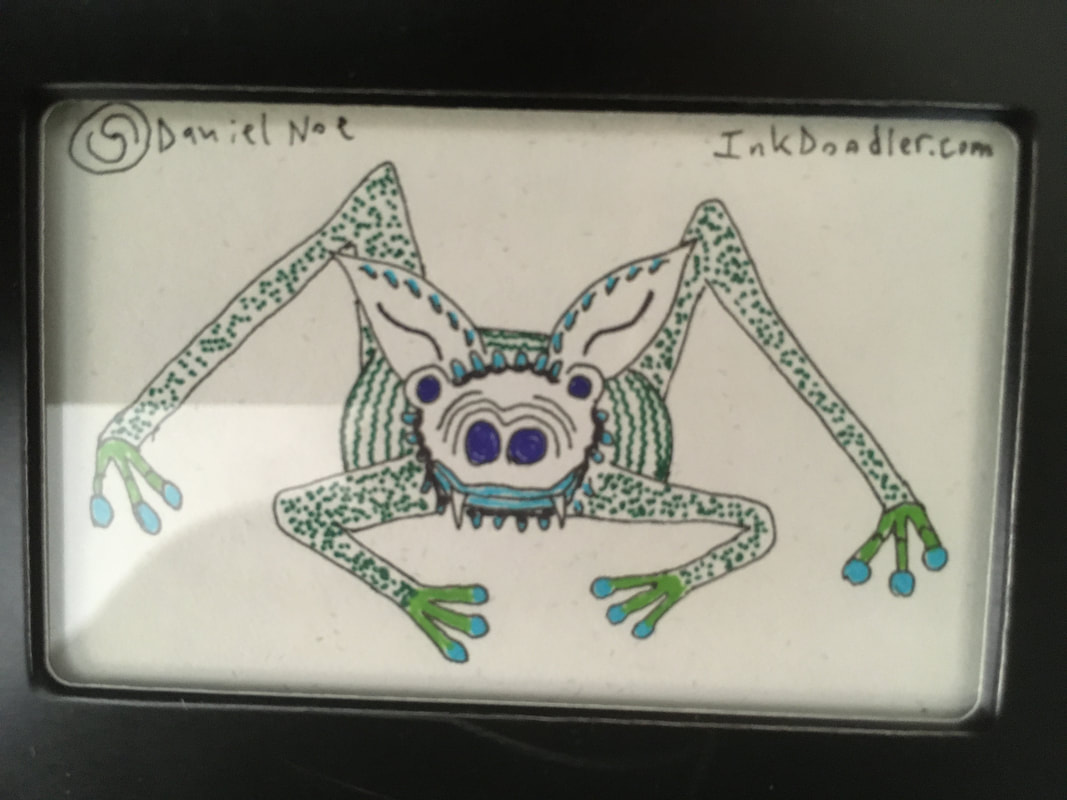
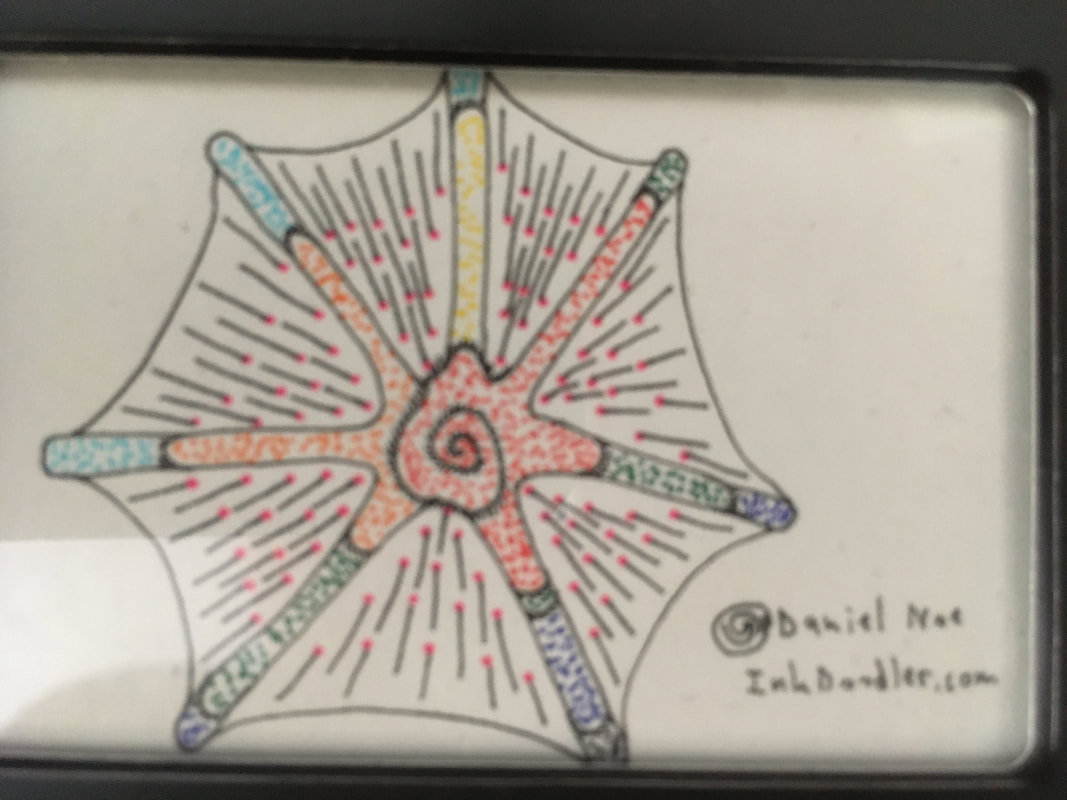
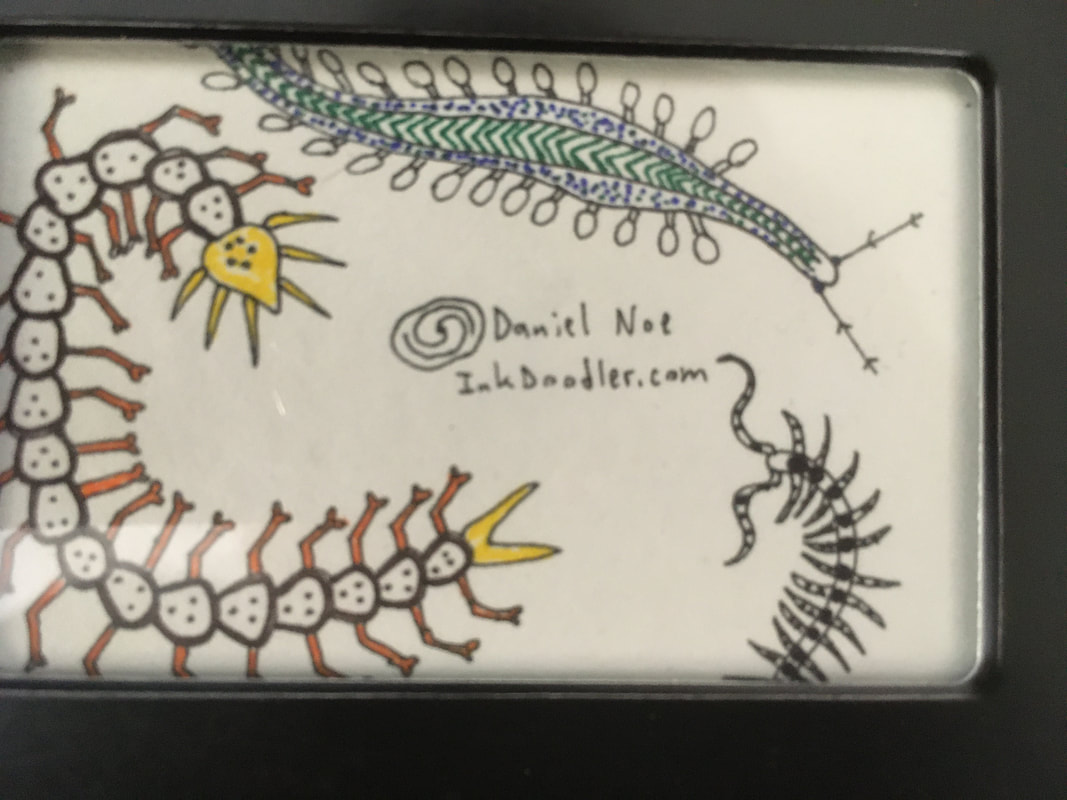
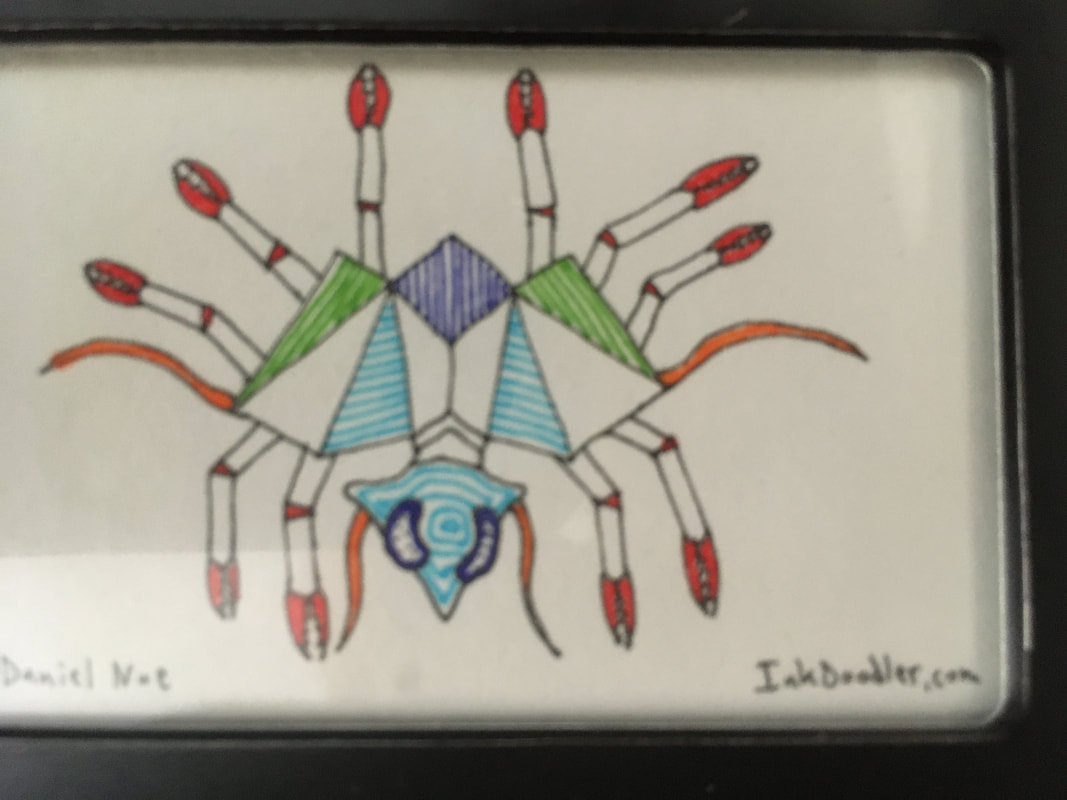
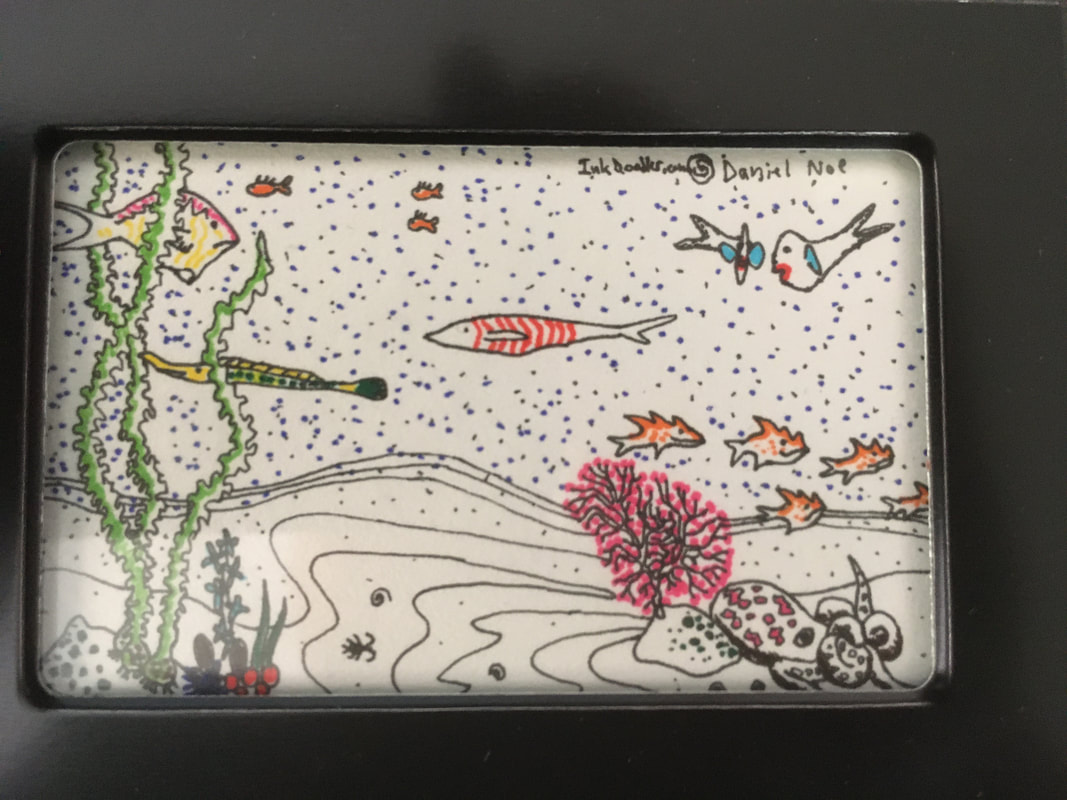
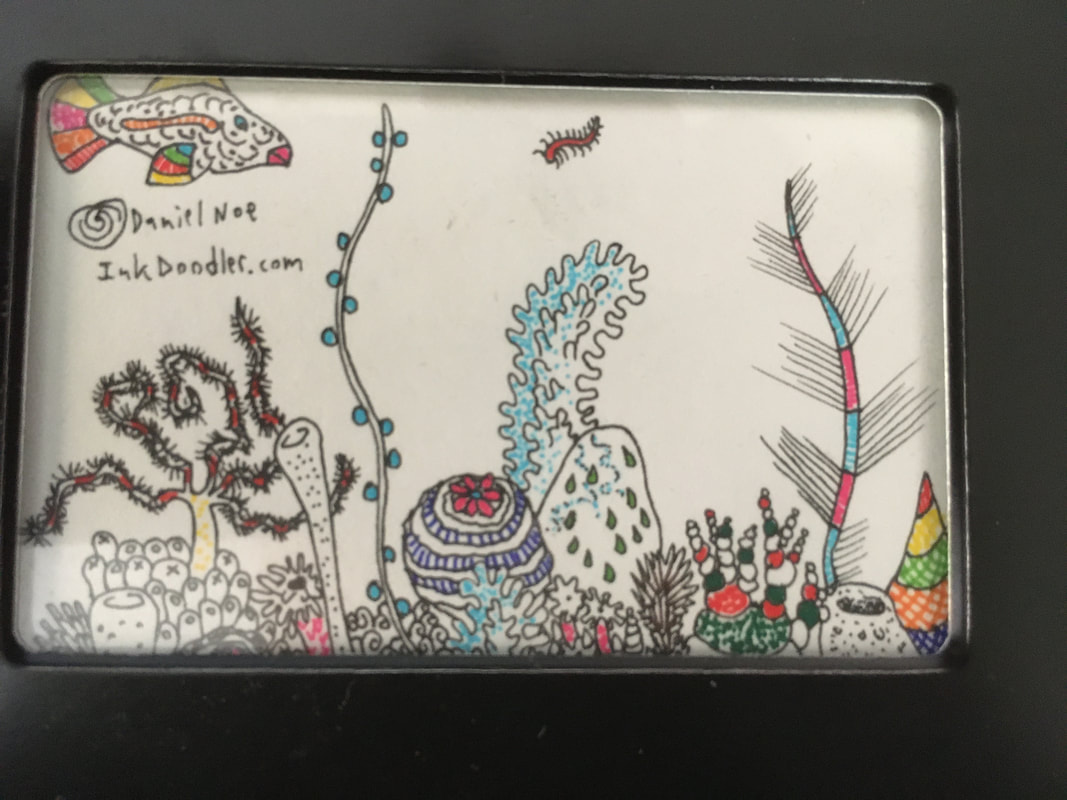
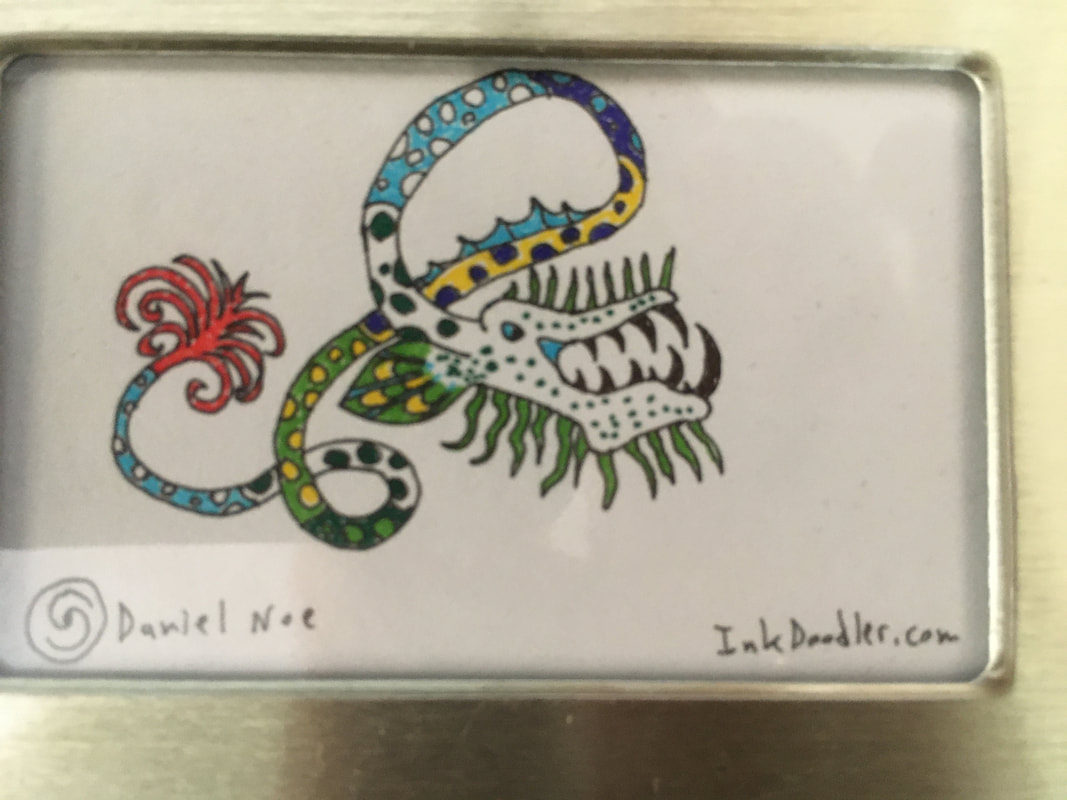
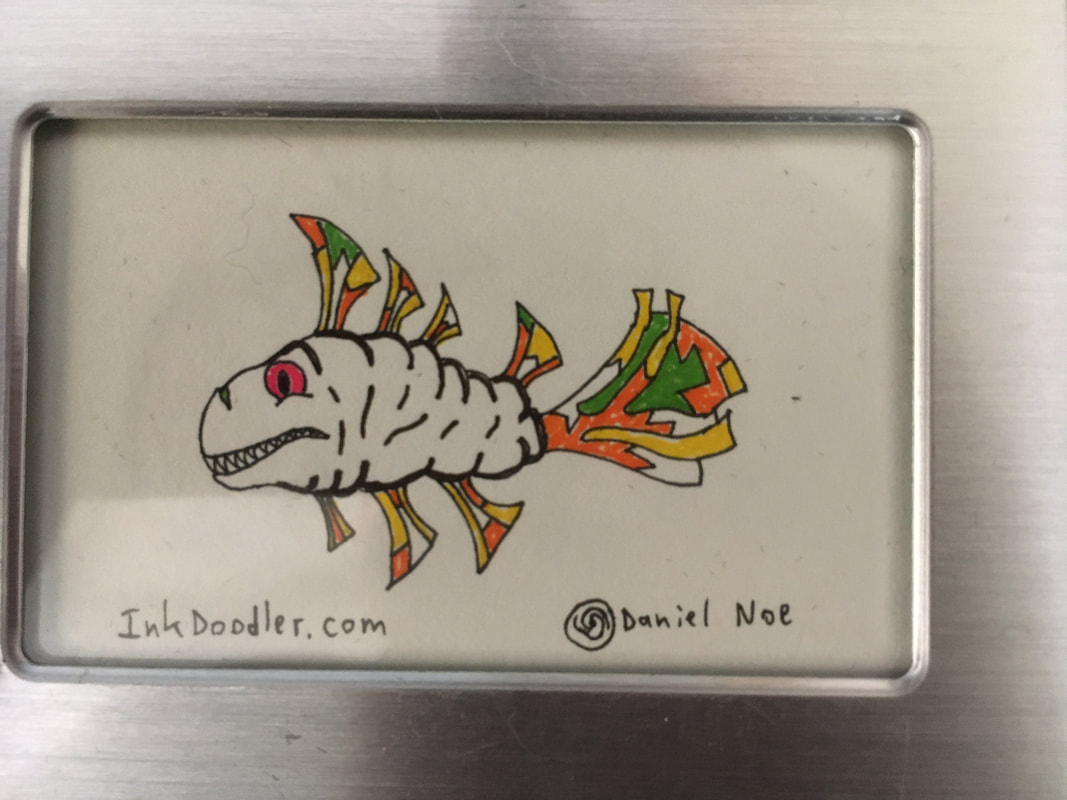
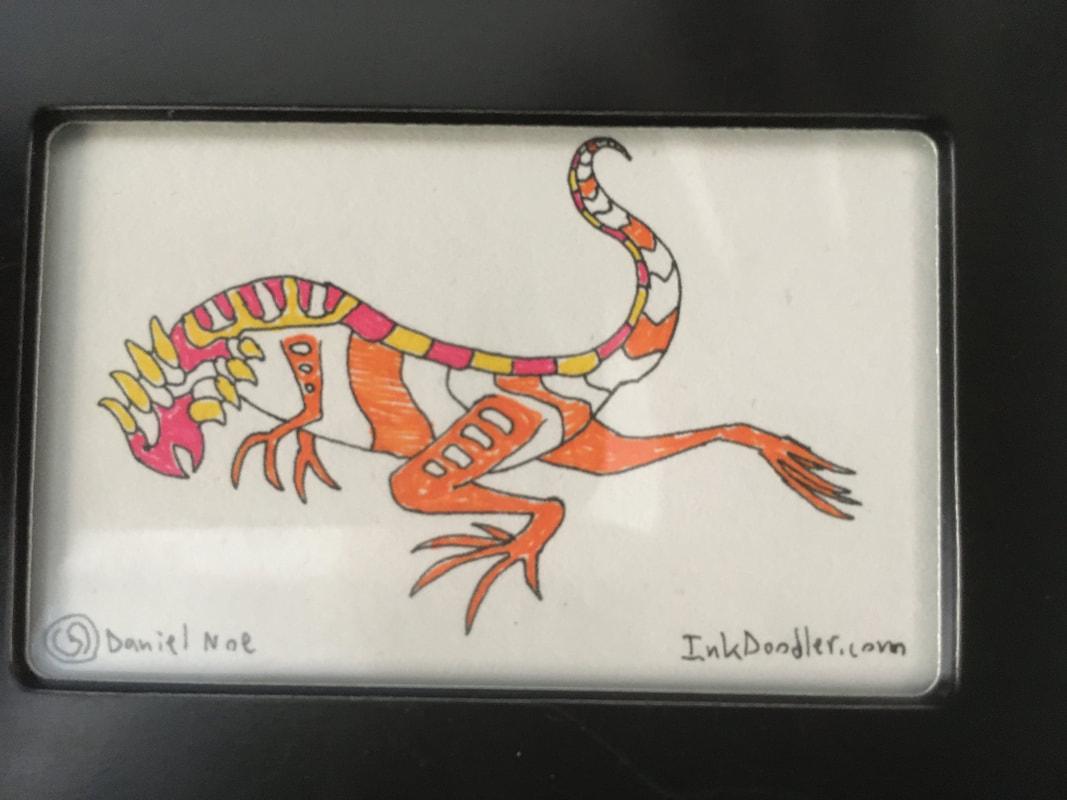
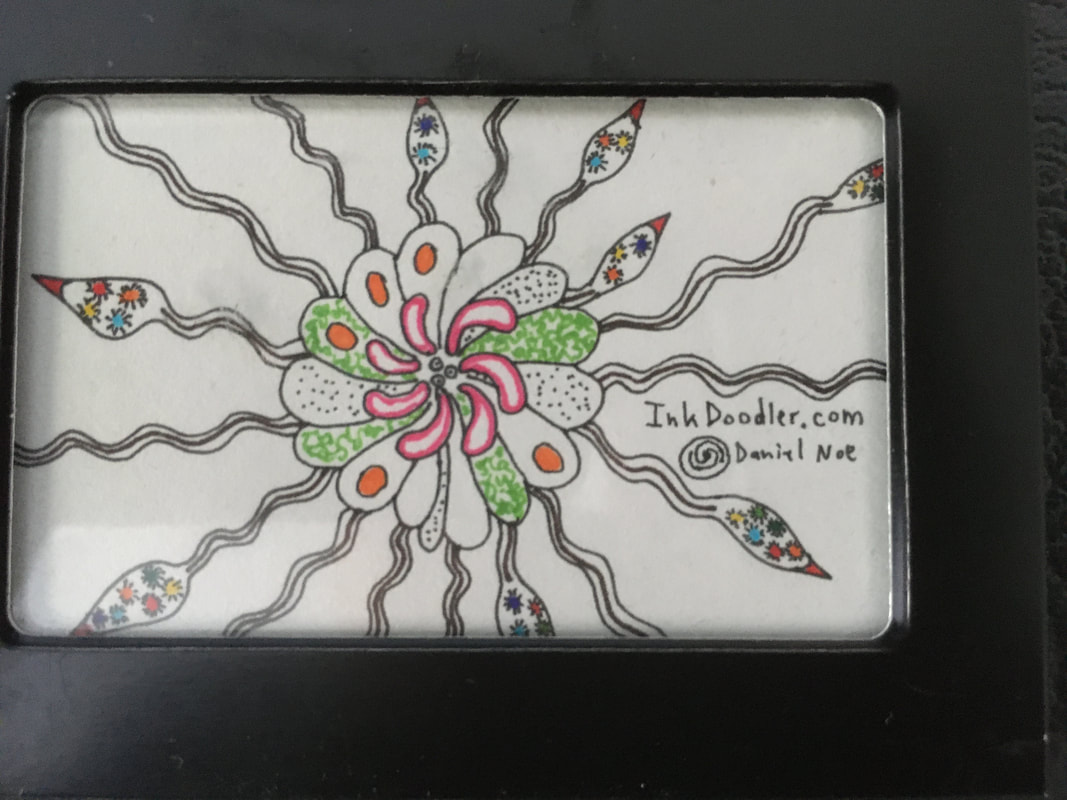
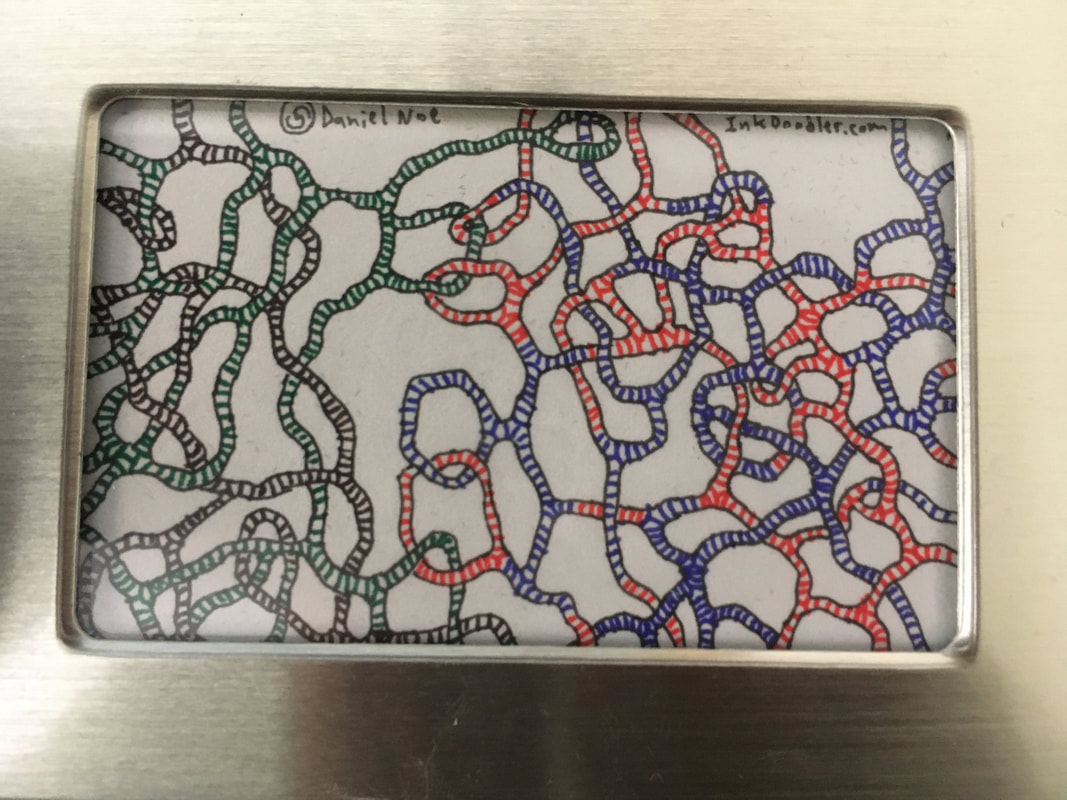
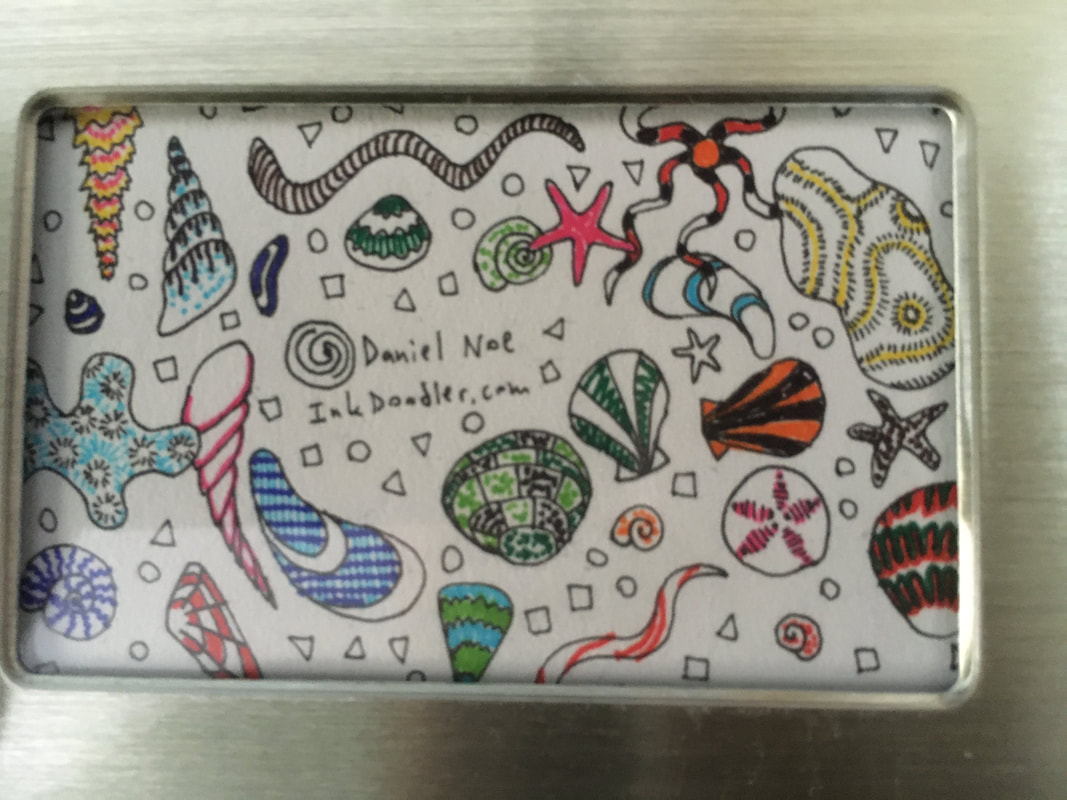
 RSS Feed
RSS Feed